AESA PROGRAMMES
- Building R&D Infrastructure
- Developing Excellence in Leadership, Training and Science in Africa (DELTAS Africa)
- Human Heredity and Health in Africa (H3Africa)
- Africa’s Scientific Priorities (ASP)
- Innovation & Entrepreneurship
- Grand Challenges Africa
- Grand Challenges Innovation Network
- Rising Research Leaders/Post-Docs
- AESA RISE Postdoctoral Fellowship Programme
- African Postdoctoral Training Initiative (APTI)
- Climate Impact Research Capacity and Leadership Enhancement (CIRCLE)
- Climate Research for Development (CR4D)
- Future Leaders – African Independent Research (FLAIR)
- Critical Gaps In Science
- Clinical Trials Community (CTC)
- Community & Public Engagement
- Mobility Schemes: Africa-India Mobility Fund
- Mobility Schemes: Science and Language Mobility Scheme Africa
- Research Management Programme in Africa (ReMPro Africa)
- Science Communication/Africa Science Desk (ASD)
- Financial Governance: Global Grant Community (GGC)
- AAS Open Research
- CARI Programmes
- Evidence Leaders Africa (ELA)
All Fellows
AAS Fellows and Affiliates are distinguished researchers who represent the continent’s talent and promising men and women from across the globe.
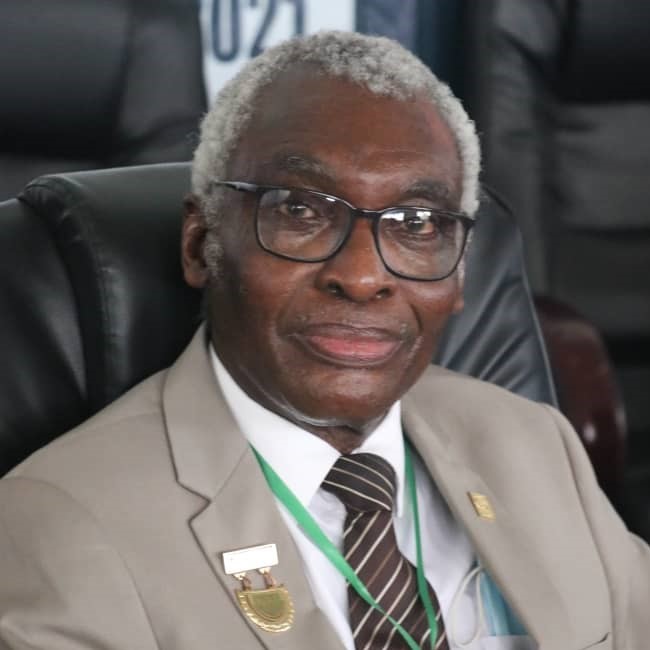
Professor Ogugua Charles Aworh
Nigeria
|Elected: 2021
Agricultural & Nutritional Sciences
View Profile
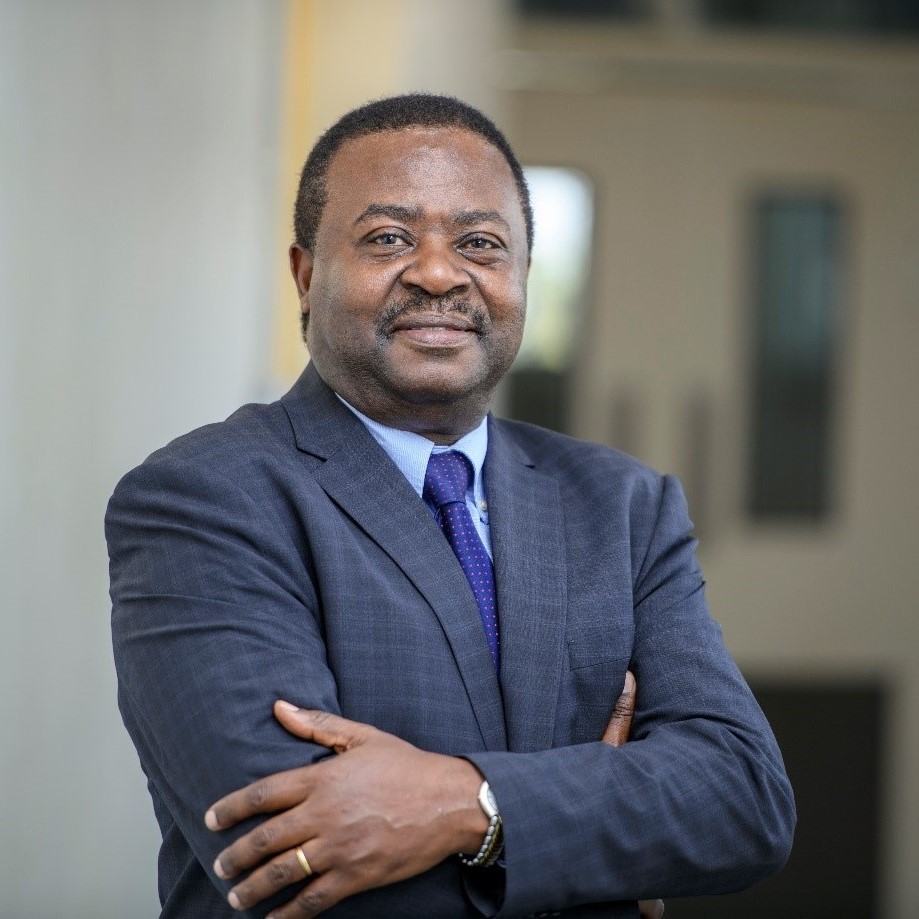
Medical & Health Sciences
Uganda
Prof. Pontiano Kaleebu is Director of the Uganda Virus Research Institute (UVRI) and Director of the MRC/UVRI and London School of Hygiene and Tropical Medicine (LSHTM), Uganda Research Unit. He is a professor of immunovirology at the LSHTM.
He holds a medical degree from Makerere University, a diploma in immunology and a PhD from University of London.
He is a Fellow of Royal College of Physicians-Edinburgh, a Fellow of Imperial College London, Faculty of Medicine, a Fellow of the Academy of Medical Sciences of United Kingdom and a Fellow of the Uganda National Academy of Sciences.
He has co-authored more than 350 publications in peer reviewed scientific journals and book chapters. His main research interests are vaccine research including understanding protective immune responses, viral diversity and resistance to antiretroviral drugs.
He co-founded the UVRI-IAVI HIV Vaccine Program a partnership with IAVI that has contributed to HIV vaccine research. He chaired the African AIDS Vaccine Programme (AAVP) under WHO for many years.
He is a member of the Ministry of Health COVID-19 Scientific Advisory Committee, the COVID-19 Vaccine Access Committee and chairs the SARS-CoV-2/COVID-19 Laboratory Testing and Quality Assurance Committee. In addition, he chairs the Ministry of Health Technical Working Group on HIV drug resistance and sits of the ART subcommittee.
He sits on a number of other National and International committees including those for WHO, Africa CDC, EDCTP and USA NIH among others. He is a member of the EDCTP General Assembly, representing Uganda and is overall coordinator of the EDCTP East African Network of Excellence, EACCR.
He has won many International research grants and trained many scientists. In addition, he has won many national and international awards including recently in 2020, Recognition of Excellence in the fight against COVID-19 and other viruses-by the Ministry of Science Technology and Innovation.
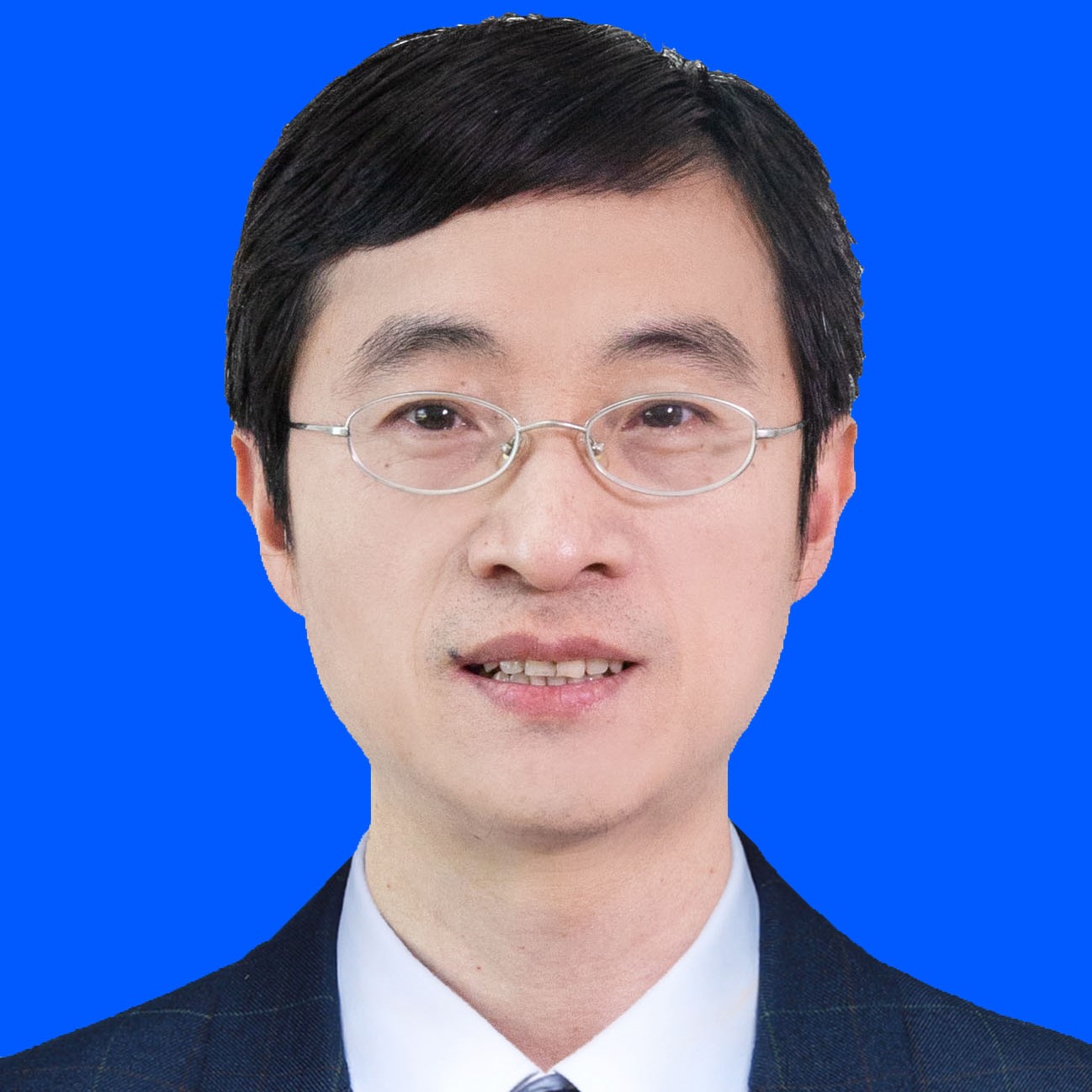
Geological, Environmental, Earth & Space Sciences
China
Shuanggen Jin is currently Vice-President and Professor at Henan Polytechnic University and Professor at Shanghai Astronomical Observatory, CAS, China. He was formerly Visiting Fellow at University of New South Wales, Australia, Post-Doc and Senior Scientist at Korea Astronomy and Space Science Institute, Research Fellow at University of Texas at Austin, USA, Professor at Bulent Ecevit University, Turkey, and Dean and Professor at Nanjing University of Information Science and Technology, China.
Jin received the B.Sc. degree in Geodesy from Wuhan University, China in 1999 and the Ph.D. degree in Geodesy from the University of Chinese Academy of Sciences, China in 2003. His main research areas include Satellite Navigation, Remote Sensing, and Space/Planetary Exploration. He was recognized for exemplary leadership in Earth observation and applications with developing new GNSS models and using GNSS-reflected signals. He was a pioneer in advancing GNSS Earth Science and promoting multidisciplinary geodesy-geophysics through studies of atmospheric disturbances, fluid mass loading and solid Earth activities. He has published over 300 peer-reviewed ISI/SCI papers, 20 patents/software copyrights and 12 books/monographs with more than 10000 citations and H-index>52. He has led over 30 projects from Europe’s ESA, China-Germany (NSFC-DFG), China’s National Key R&D Program and NSFC. He has supervised over 30 Ph.D and 50 M.Sc as well as 20 Post-Docs from China, Africa and Europe.
Jin has been Chair of IUGG Union Commission on Planetary Sciences, President of International Association of Planetary Sciences (IAPS), President of the International Association of CPGPS, Editor-in-Chief of International Journal of Geosciences, Editor of Geoscience Letters, Associate Editor of IEEE Transactions on Geoscience & Remote Sensing and Journal of Navigation, Editorial Board member of Remote Sensing, GPS Solutions and Journal of Geodynamics. He has received First Prize of Satellite Navigation & Positioning Progress Award, First Prize of China Overseas Chinese Contribution Award, Fellow of African Academy of Sciences, Fellow of Electromagnetics Academy, Fellow of International Union of Geodesy and Geophysics (IUGG), Fellow of International Association of Geodesy (IAG), Member of European Academy of Sciences, Member of Russian Academy of Natural Sciences, Member of Turkish Academy of Sciences, Member of Academia Europaea, 100-Talent Program of CAS, World Class Professor of Ministry of Education and Cultures, Indonesia, Chief Scientist of National Key R&D Program, China, Elsevier China Highly Cited Scholar (2020-2022), and World's Top 2% Scientists (2020-2022).
Jin is an exceptional leading scientist in his scientific areas with significant contributions to international cooperation in satellite navigation and space geodesy. He has promoted high-level cooperation between China and Africa in environmental and climate change as well as the world.
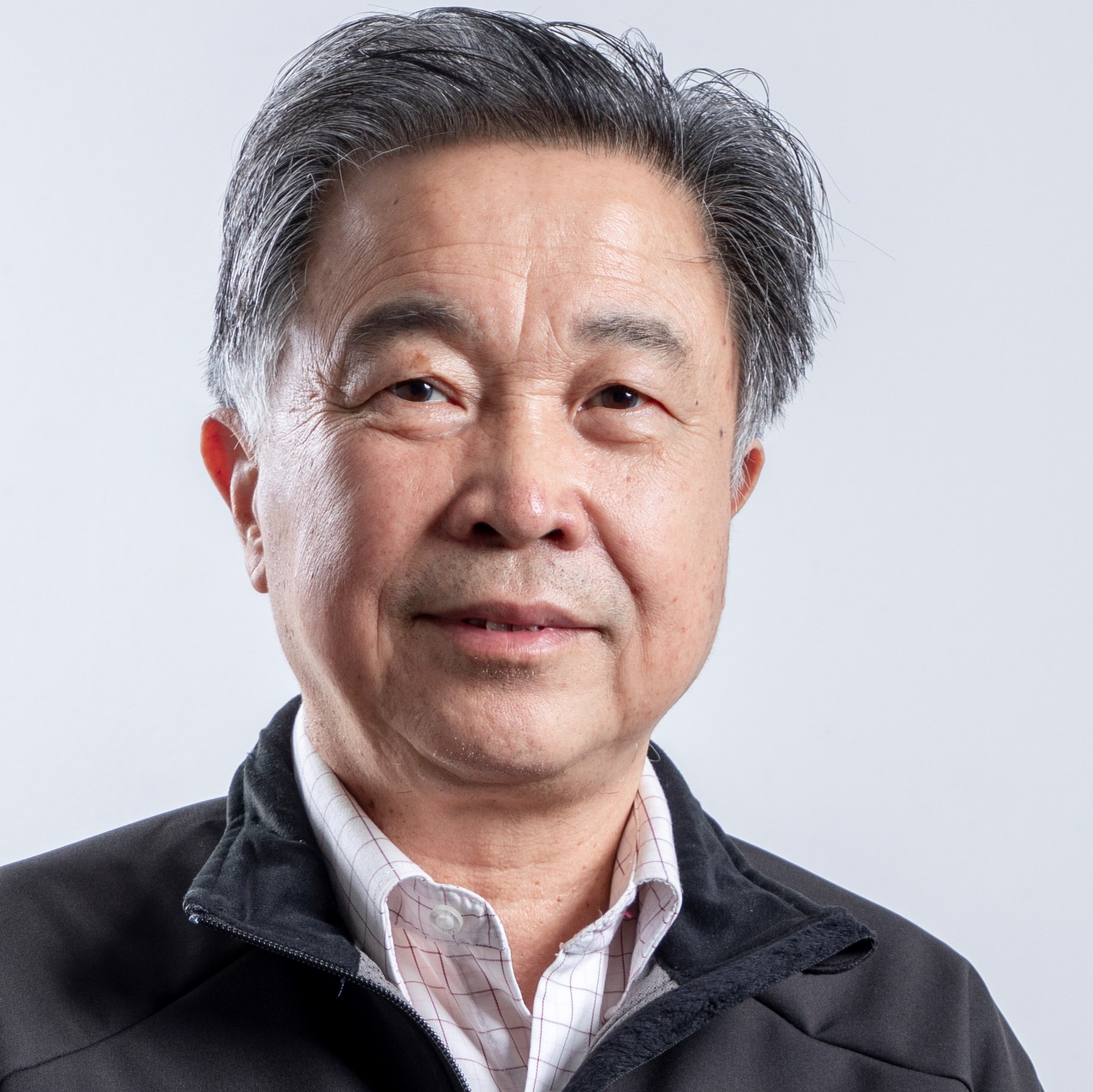
Biosciences
China
Dr. Yang received his Ph.D. from University of Copenhagen, Denmark (1985-1988), and post-doctoral training in France (1988-1990) and the USA (1990-1994). He, as Chairman and co-founder of BGI-China which is regarded as one of the most important contributors to the genome research in the world, making a significant contribution to the International Human Genome Project (HGP, 1999-2003), the International HapMap Project (HapMap, 2002-2006), the International 1000 Genomes Project (G1K, 2008-2012), the International Cancer Genome Project (ICGP, 2008-present), the international collaboration on Yeast Genome Redesign and Synthesis (Sc2.0, 2011-2017), as well as sequencing and analyzing genomes of many other animals, plants, and microorganisms, with >600 publications in the internationally prestigious peer-reviewed journals, including >120 in Cell, Science, Nature and its series, with an H-index = 115 (Nov. 08, 2022).
Dr. Yang has been actively involved in international activities. He is the founder and Chair of the annual meetings of the International Conference on Genomics (ICG1-17) since 2006. He served as a member of the UNESCO’s International Bioethics Committee (IBC, 1998-2004) and an official representative of the Chinese Government in the Inter-Governmental Bioethics Committee (IGBC, 2004-2005), a member of the Expert Group on Biotech for the High Commissioner on Human Rights of the United Nations (2002-2003), a member of the WHO Working Groups (2002, 2005, etc.), as well as a member of the International Research Panel of the Presidential Commission for the Study of Bioethical Issues of the United States (2011-2014). Yang was also a member of the European Focus on Biotechnology in China (EFBIC, 2003-), and vice President of European Action on Global Life Sciences (EAGLS, 2005-). He is also Chair of the TWAS Advisory Committee on Covid (2021-present).
Chemical Sciences
India
Dr. A. K. Tyagi joined Chemistry Division, BARC in 1986 through BARC Training School. Presently he is Director, Chemistry Group, BARC, Mumbai and also a Senior Professor (Chemistry) at Homi Bhabha National Institute (HBNI), Mumbai. His research interests are in the field of nanomaterials, functional materials, nuclear materials, metastable materials and Hybrid materials. He has published about 650 papers in international journals, 10 books and several review articles. He has supervised 33 students for their PhD. He is a voracious speaker who has delivered a large number of invited talks, keynote lectures and popular lectures.
He has been conferred with a number of prestigious awards such as such as DAE-Homi Bhabha Science and Technology Award, DAE-SRC Outstanding Researcher Award, DAE-Group Achievement Award; MRSI Medal; MRSI-ICSC Materials Science Senior Award; MRSI-CNR Rao Prize in Advanced Materials; CRSI Bronze Medal; CRSI-CNR Rao National Prize in Chemical Sciences; CRSI-Silver Medal; Medal of Indian Nuclear Society; Rheometric-ITAS Award; ISCAS-Dr. Lakshmi Award; IANCAS-Dr. Tarun Datta Memorial Award; R. D. Desai Memorial Award of Indian Chemical Society; Rajib Goyal Prize in Chemical Sciences; ISCB Excellence Award in Chemical Sciences; CCRS Award in Chemical Sciences; ISCA Platinum Jubilee Lecture Award in Materials Science; Metallurgist of the Year award from Ministry of Steel, GoI; JNCASR-National Prize in Solid State and Materials Chemistry; ISCA Acharya PC Ray Memorial Award; NASI – Prof. N.R. Dhar Memorial Award and JNCASR-Prof. AV Rama Rao Foundation Lecture Award. He is a Fellow of the Royal Society of Chemistry; National Academy of Sciences, India; Indian Academy of Sciences and Indian National Academy of Engineering.
He did postdoctoral research at Max-Planck Institute, Stuttgart, Germany (1995-96) and subsequently has been a visiting scientist to several countries like USA, France, Canada, Japan, Russia, Germany, China, Portugal, Singapore, Australia, Sweden, Italy, Spain, Israel, Malaysia and South Africa.
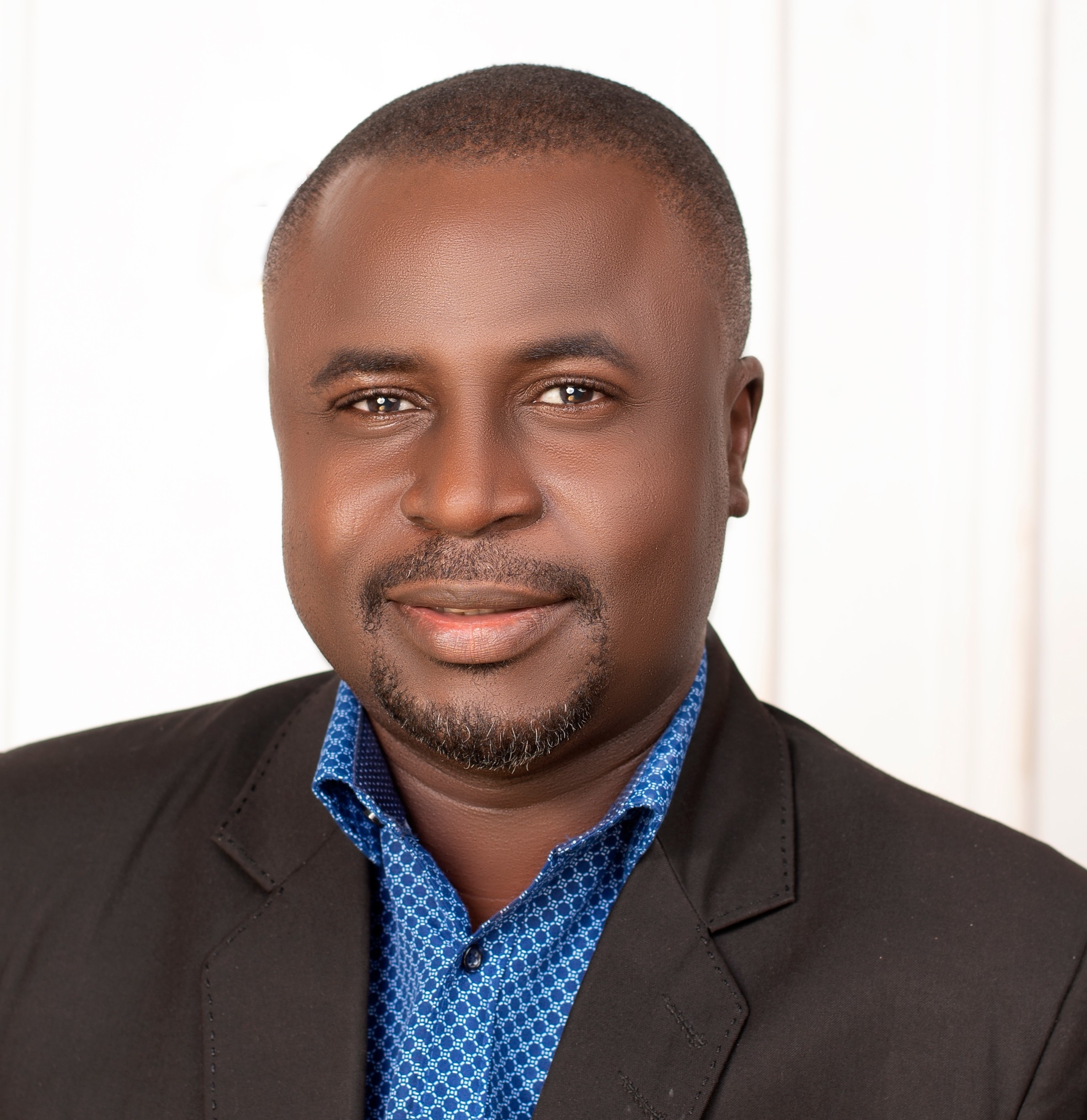
Biosciences
Nigeria
Dr. Etinosa O. Igbinosa is a professor of molecular microbiology, head of the Applied Microbial Processes & Environmental Health Research Group, and Director of General Studies at the University of Benin, Nigeria. He was a senior Alexander von Humboldt Fellow at the Max-Rubner Institut (MRI) Kiel, Germany, and German Federal Institute for Risk Assessment (BfR), Berlin Germany. In 2019, Dr. Igbinosa was awarded the Africa Oxford Visiting Fellowship Program (AfOx fellow) at the University of Oxford, United Kingdom. He is a grant holder and Principal Investigator (PI) to Alexander von Humboldt and Cambridge-Africa ALBORADA UK and a leading expert in pathogen biology and disease transmission. Dr. Etinosa Igbinosa was ranked among the World’s Top 2% Scientists in 2020 by Elsevier Scopus, clearly demonstrating his research impact on the global stage. He was recognized by the Professional Registers as a Chartered Biologist from the Royal Society of Biology, UK, in 2013, which recognized his impactful contribution to the development of biological sciences globally. Dr. Igbinosa’s excellent inputs and outputs in research, education, and engagement have directly contributed to the high standard at the University of Benin. As a passionate researcher, to date, he has published reputable top-notch scientific peer-journal articles with cumulative citations of 8693, an h-index of 48, and an i10-index of 116. In addition, he served as PI or co-PI for over 16 grants totaling ~USD 850,000. As a scientist and professor, Etinosa has investigated the molecular microbial ecology, bacterial evolution, molecular pathogenesis, and molecular drug resistance of bacteria. As a leader of a research group at the University of Benin, he has nurtured a vision to improve the environment and human health by linking molecular science to basic and applied knowledge in science and technology. He has successfully supervised 11-PhD and 38-MSc and >65 BSc (Hons) students. Thus, directly contributing to excellent education and learning, and capital development in Nigeria. Dr. Igbinosa's wider engagements have contributed to enhancing interdisciplinary collaborations and policy discourse among academics, technocrats, and practitioners, in connection with the Sustainable Development Goals (SDGs) on water and sanitation (SDG 6), good health and well-being (SDG 3), and quality education (SDG 4). Dr. Igbinosa is a member of several reputable scientific societies and a Fellow of the Africa Science Leadership Programme (ASLP) at the University of Pretoria South Africa and InterAcademy Partnership (IAP) Science Advice for Policy Fellowship (IAP-SAP Fellow). He is a consultant expert on foodborne antimicrobial resistance (AMR) to the Joint FAO/WHO Committee on food safety.
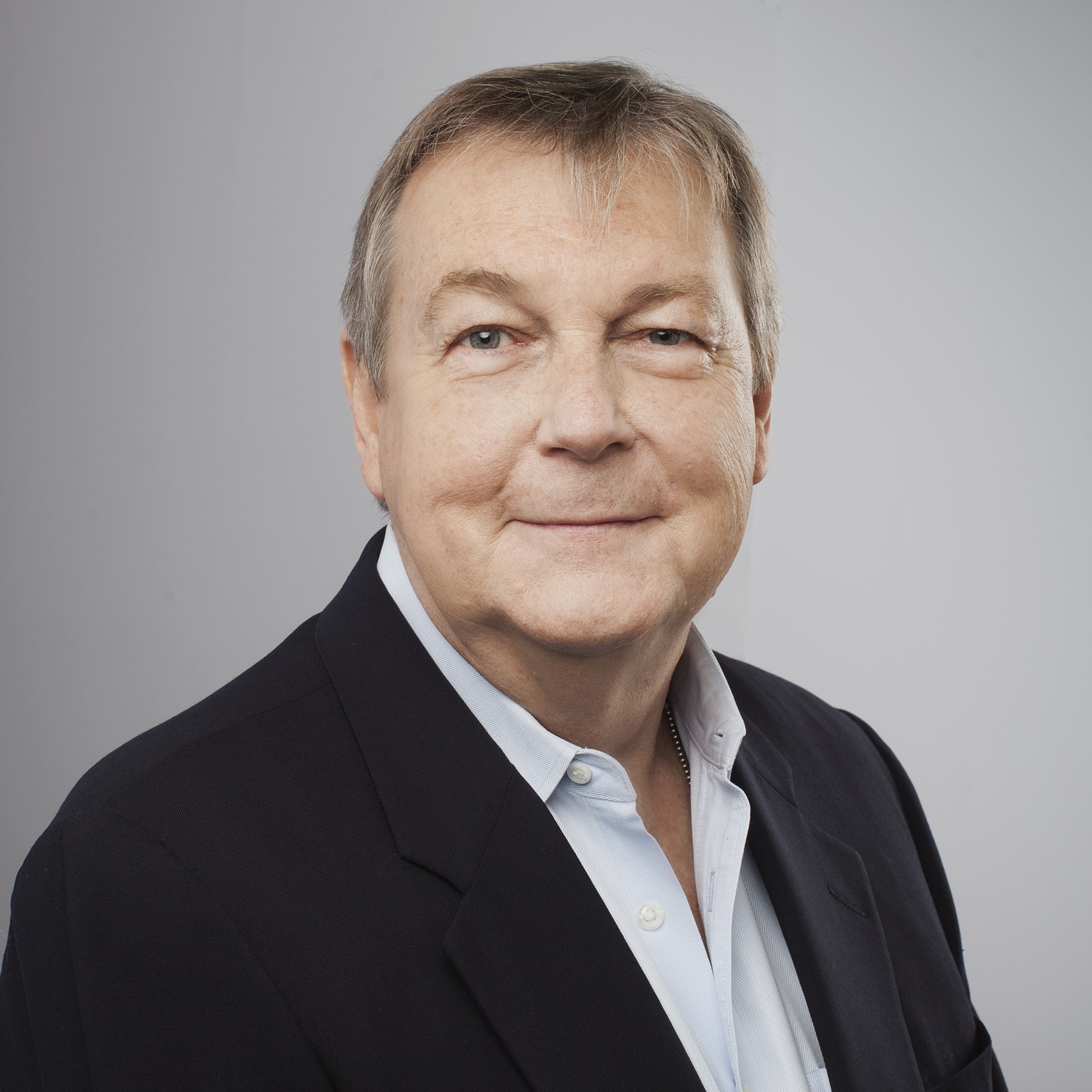
Medical & Health Sciences
South Africa
Duncan Steele is the Deputy Director and Strategic Lead for enteric vaccines in the Enteric and Diarrheal Diseases team of the Bill & Melinda Gates Foundation. He is responsible for an integrated portfolio of vaccine research and development and for implementation strategies for the control of diarrhea and enteric fever in vulnerable populations in endemic countries. He coordinates teams across Vaccine Development and Vaccine Delivery for improved and new vaccines against rotavirus, cholera, typhoid fever, Shigella spp. and Hepatitis E virus.
Before starting at the foundation in October 2011, Dr. Steele was at PATH, a global health non-profit organization, where he worked across multiple diarrhea vaccine-related programs, including the Gavi-funded Rotavirus Vaccine Program focused on disease burden and clinical trials in Africa and Asia; and in vaccine development for new alternative rotavirus vaccines; and for vaccines against ETEC and Shigella. Previously, as a scientist at the Initiative for Vaccine Research, Department of Immunization, Vaccines and Biologicals, World Health Organization, Steele was responsible for the diarrheal disease vaccines portfolio, where he coordinated a global strategic agenda for vaccine research for the major diarrheal and enteric diseases.
Dr. Steele is a South African trained microbiologist with extensive experience in virology and microbiology, especially for diarrheal diseases, and was based at MEDUNSA, now Sefako Makgatho Health Sciences University where he has kept a relationship, continuing to mentor postgraduate students. In 1996, he established the world recognized South African MRC-funded Diarrheal Pathogens Research Unit which pioneered rotavirus research on the continent and developed collaborations with African researchers which continues today. His students and mentees are scattered across the African continent, many leading their own research groups. Steele is the author of more than 325 scientific publications on diarrheal diseases, epidemiology, clinical research and vaccine development.
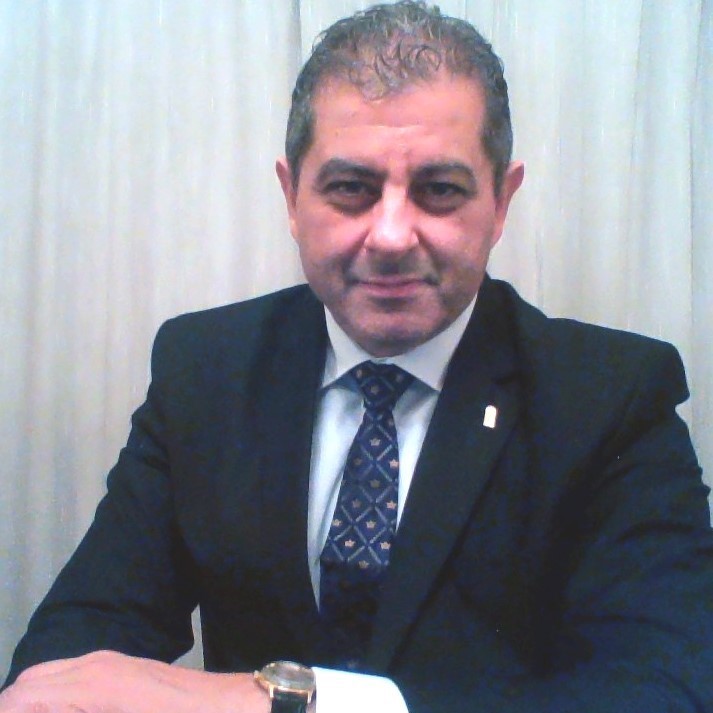
Professor Cherif Farid Matta
Egypt
|Elected: 2021
Theoretical and computational chemistry Theoretical biophysics
View Profile
Theoretical and computational chemistry Theoretical biophysics
Egypt
CURRENT POSITIONS (2022-2023)
Chérif F. Matta, B.Pharm.Sci., Dipl., PhD, HDR, FRSA, FRSB, FInstP, FRSC, FAAS, FAAAS is Professor and Chair of the Department of Chemistry and Physics at Mount Saint Vincent University (Canada). He holds honorary or visiting professorships at Université Laval, Dalhousie University, and Saint Mary’s University (all in Canada) and at Zewail City for Science and Technology (Egypt).
CURRENT RESEARCH (2022-2023)
The research group of Professor Matta is focused on theoretical and computational chemistry and in mitochondrial biophysics. Matta is known for work on the Quantum Theory of Atoms in Molecules (QTAIM) and in theoretical biophysics. He co-discovered of a new form of chemical bonding termed “hydrogen-hydrogen bond” and originated the concept of electron localization-delocalization matrices (LDMs) and their applications in materials and drug design. Prof. Matta’s work on the effects of electromagnetic fields on chemical bonding and reactivity may be considered foundational. He has also contributed to the promotion of the emerging field of Quantum Crystallography. Chérif Matta and colleagues discovered novel biochemical roles of the mitochondrial enzyme ATP synthase related to its intrinsic electric field in modulating and controlling biochemical energy transduction.
DISSEMINATION & RECOGNITION
Professor Matta’s counts ca. 180 publications including 4 books. He has given around 250 lectures at conferences and in universities and research centers in more than 30 countries.
Prof. Matta has received the “Excellence Initiative” Distinguished Visiting Professorship by the Minister of Science and Higher Education of Poland (2022), the Award for Research Excellence from Mount Saint Vincent University (2017), and the designation as Lady Davis Fellow (2016). Prof. Matta received the NSERC-Acfas “prevue par l’image” Prize for 2016, the Molecular Graphics and Molecular Simulation Society MGMS Silver Jubilee Prize for 2009, and the John C. Polanyi Prize in Chemistry for 2004. In 2021 he was named the Science Atlantic Notable Scientist Speaker of the Year. In 2022, he was invited to provide an expert witness testimonial in front of the Canadian House of Commons’ Standing Committee on Science and Research studies (SRSR).
Prof. Matta is Fellow of the African Academy of Sciences (elected in 2021), Fellow of the American Association for the Advancement of Science (elected in 2021), Fellow of the Royal Society of Chemistry (elected in 2010), Fellow of the Institute of Physics (elected in 2016), Fellow of the Royal Society of Biology (elected in 2019), and Fellow of the Royal Society of Arts (elected in 2018).
Matta has received funding from the Natural research and Engineering of Canada (NSERC), Canada Foundation for Innovation (CFI), The (Egyptian) Academy of Scientific Research and Technology (ASRT), The Killam Trusts, The Lady Davis Trust, and The Visegrad Fund.
SCHOLARLY SERVICE
Professor Matta serves in a number of capacities on committees of provincial, federal, and international research funding agencies. He has been a member of a number of committees of the Natural and Engineering Research Council of Canada (NSERC), of Compute Canada, and of the African Academy of Sciences. After being a member for four years, Prof. Matta served as Chair/Head of the Interdisciplinary Adjudication Committee of the Canada Research Chairs (CRC) programme of the Tri-Council of Canada (2021-2022).
Currently, he is serving as a member of the Multidisciplinary Selection Board of the Canada Excellence Research Chairs (CERC) competition of the Tri-Council of Canada and a member of the Multidisciplinary Committee “Microbiology/Virology” of the Fonds de recherche du Québec – Nature et technologies (FRQNT).
Chérif Matta is also the Director (2021-2024) of Accreditation and Member of the Board of Directors of the Canadian Society for Chemistry. He is serving a second elected term as a member of the Commission for Quantum Crystallography of the International Union of Crystallography (IUCr) (2017-2024). Matta is an Associate Editor of Foundations of Chemistry (Springer) since 2021.
SOME KEY RESEARCH PUBLICATIONS
- Matta, C. F.; Huang, L.; Massa, L. (2023). Quantum Crystallography, De Gruyter (250 pages) (Link).
- Vigneau, J.-N.; Fahimi, P., Ebert, M.; Cheng, Y.; Tannahill, C.; Muir, P.; Nguyen-Dang, T.-T. Matta, C. F. (2022). “ATP synthase: A moonlighting enzyme with unprecedented functions”, Chemical Communications (ChemComm) 58, 2650-2653. (Link)
- Smith, F.; Majaess, D.; Harriott, T. A.; Massa, L.; Matta, C. F. (2021) “Establishing new diffuse interstellar band correlations to identify common carriers”; Monthly Notices of the Royal Astronomical Society (MNRAS) 507, 5236–5245. (Link)
- Matta, C. F. (2014). "Modeling biophysical and biological properties from the characteristics of the molecular electron density, electron localization and delocalization Matrices, and the electrostatic potential"; Journal of Computational Chemistry 35, 1165-1198. (Link).
- Sowlati-Hashjin, S.; Matta, C. F. (2013) "The chemical bond in external electric fields. energies, geometries, and vibrational Stark shifts in diatomic molecules"; Journal of Chemical Physics 139, 144101. (Link).
- Matta, C. F.; Hernández-Trujillo, J.; Tang, T.-H.; and Bader, R. F. W. (2003). “Hydrogen-hydrogen bonding: a stabilizing interaction in molecules and crystals”, Chemistry - A European Journal 9, 1940-1951. (Link).
Please also visit: https://www.cmatta.ca/.
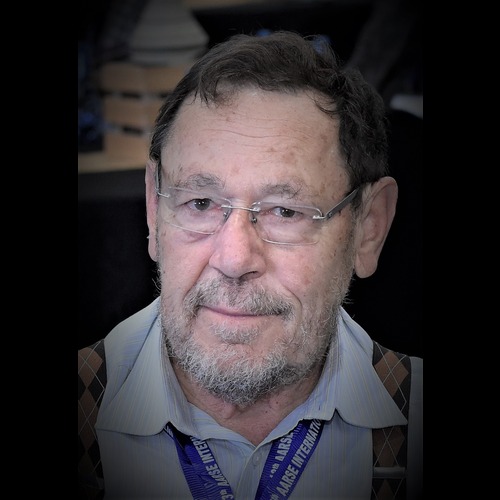
HAROLD JOHN ANNEGARN
South Africa
|Elected: 2021
Geological, Environmental, Earth & Space Sciences
View Profile
Geological, Environmental, Earth & Space Sciences
South Africa
Extraordinary Professor, School of Geo and Spatial Sciences, North West University, Potchefstroom, South Africa; Honorary Associate Professor, China Agricultural University, Beijing; Fellow of the Academy of Science of South Africa
Harold Annegarn is a polymath who has contributed to fundamental and applied sciences across a wide range of scientific disciplines. From his doctoral thesis in nuclear physics, he branched out to become a specialist in atmospheric chemistry, the health effects of air pollution and energy efficiency. Annegarn has published in diverse fields - atmospheric science, climatology, remote sensing, geology, mining, science diplomacy, botany and even an oft-cited paper on the avian biology of vultures. He has risen to international prominence in several fields, having hosted international projects and organised major conferences in nuclear physics, atmospheric sciences, energy and remote sensing.
The true contribution of Annegarn to African and global science has been in his mentoring of graduate students, 28 doctoral and 59 Masters in all. Following South Africa’s political transition in 1994, he deliberately recruited students to address historical inequalities within South Africa and to accept students from elsewhere in Africa, 13 countries all together. Annegarn inducted students into the global scientific community through his research collaborations with the United States, Europe, China and Australia. Annegarn recognised satellite remote sensing as a vital new technology for environmental stewardship and African development, and a field that could provide opportunities for African participation in globally significant science. In addition to academic mentorship, Annegarn provided full financial support for African students and post-doctoral fellows from research grants and earned income. In many case, mentorship continued beyond graduation, to assist students in launching their careers. Many of his graduates have achieved prominence in their home countries or internationally in academia, government and industry.
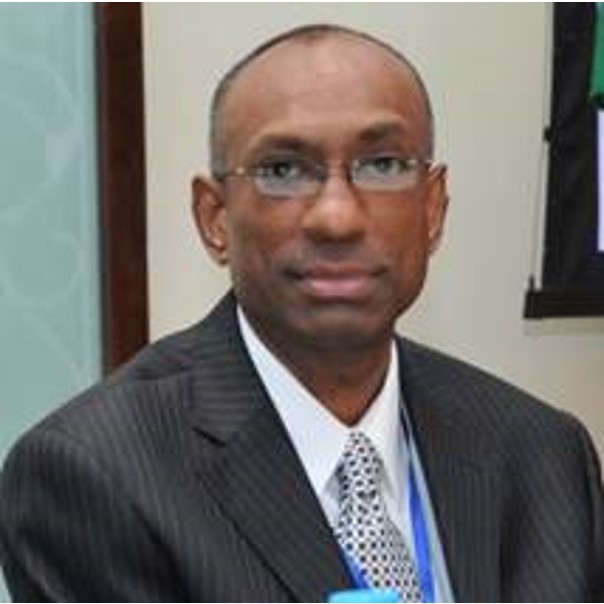
Chemical Sciences
Mauritius
Prof Ponnadurai Ramasami, CSci, CChem, FRSC, FAAS, FICCE, MMast, received his PhD in Physical Chemistry and became full Professor in 2013. He is a Visiting Professor with the University of Johannesburg and he is Professor Extraordinarius with the University of South Africa. He was awarded the best Mauritian Scientist in 2016. He also holds a UNESCO Chair in Computational Chemistry. He leads the Computational Chemistry Group, Department of Chemistry, Faculty of Science at the University of Mauritius. The research group focuses on the use of computational methods to solve chemistry and interdisciplinary problems. The group is particularly interested to collaborate with experimentalists and to use computational methods to complement experimental research. He has already published 265 research papers in peer-reviewed journals and he has edited several books published by Springer and De Gruyter. He organises several scientific events, training sessions and he is the chairman of the annual Virtual Conference on Chemistry and its Applications. He has participated in several international conferences as keynote/plenary speakers. Ha has also secured several research grants.
The url of the website of his research group is https://sites.uom.ac.mu/ccuom/

Dr. Jean Albergel
Tunisia
|Elected: 2021
Geological, Environmental, Earth & Space Sciences
View Profile
Geological, Environmental, Earth & Space Sciences
Tunisia
Dr. Jean Albergel, Emeritus Senior Scientist, Dr Albergel joined IRD (the French Research Institute for Sustainable Development) in 1979 and spent most of his working life in Africa; especially in semi-arid countries where he addressed four related scientific topics: (1) infiltration processes, runoff, erosion and fluxes transfers at the scale of cultivated catchments, (2) impacts of climate variability on water resources, (3) water and land management and ecosystem services under threat from climate change, (4) nexus water, energy, food security.
He has held the following positions in research management: (1) coordinator of the HYDROMED programme on small dams posted in Tunis (1995-2001), (2) laboratory director at the Montpellier Agricultural School (2001-2006), (3) representative of the French Research Institute (IRD) for East Africa, posted in Nairobi (2006-2012), (4) director of European affairs at the IRD headquarters (2012-2013), and (5) representative of the French research institutions in Southern Africa and director of the IRD-CNRS-CIRAD joint office in Pretoria (2013-2017), Special Advisor to Prof. Jean-Paul Moatti for the UN Global Sustainable Development Report (GSDR 2019) and as director of the mission on expertise and consultancy (2017 – 2022). He retired in February 2022 with the status of Emeritus Senior Scientist and as Executive Secretary of the Commission for International Agricultural Research (CRAI) at the French Ministry of Higher Education, Research and Innovation.

Biosciences
South Africa
Melodie A. McGeoch was born in Gauteng, South Africa. She obtained her B.Sc degree in Botany and Entomology, and B.Sc (Hons) in Entomology, from the University of KwaZulu-Natal. In 1995 she was awarded a PhD in Entomology from the University of Pretoria. She has held academic positions at the Universities of Pretoria, Stellenbosch and Monash. She is currently Professor in Ecology at La Trobe University (Australia). Over her career to date Prof. McGeoch has held positions as Editor of African Entomology, Head of the Cape Research Centre (South African National Parks), and Director of Masters in Environment and Sustainability (Monash University). She currently serves as 1st Vice Chair of the Science Committee of the Global Biodiversity Information Facility (GBIF) and sits on the Board of the National Computational Infrastructure (ANU).
Prof. McGeoch’s research activities fall into three main areas: (1) Developing methods to improve the estimation, modeling and monitoring of biodiversity. This research has led to developments in the theory and application of indicators for biodiversity policy and management, including for example Essential Biodiversity Variables. She has led the development of novel, information-rich methods to model biodiversity change. (2) A key research focus has been the development of the theory of species distributions. Specifically, modelling the fundamental properties of species distributions using occurrence data, by examining the relationships between scale, range, population aggregation and abundance. (3) More recently she has worked on approaches to improve the quality, quantity, accessibility and usefulness of data on biological invasions. This was driven by the need for improved quality of information on invasive species. Along with an international team of partners, her research contributed to the delivery of the Global Register of Introduced and Invasive Species – the Register provides open access checklists of invasive alien species for all countries.
Medical & Health Sciences
Nigeria
Martins Emeje obtained BPharm with distinction from Ahmadu Bello University, MPharm and Ph.D. from University of Nigeria, where he received the best PhD award and was enlisted as UNN’s “Face of Research.” He established the first nanomedicine center in Nigeria. He was the pioneer head of the intellectual property and technology transfer as well as the technology innovation and support center. Prof. Emeje’s several international fellowships include the prestigious Raman fellowship. He has over 150 primary scientific publications, patents, trademarks, and public opinions in print and electronic media. He has a postgraduate certificate in Project Management from Walden University, Minnesota, as well as a professional teaching certificate and a World Bank certification in Public Procurement.
He is an examiner to universities in Ghana, India and Nigeria. He was an adjunct lecturer at University of Uyo for nine (9) years, during which he developed the postgraduate curriculum for the department of Pharmaceutics. He currently supervises postgraduate students in Universities in Nigeria and abroad. Emeje was Head, NIPCO during which the first indigenous phytomedicine was licensed to a pharmaceutical company.
Emeje is a recipient of several grants including the American Cancer Society grant for the development of Oral morphine solution; $11.6M grant for development of drugs for malaria, tuberculosis and diabetes as well as a 2022 Royal Society grant. His work on herbal formulations resulted in three major registered products in the market. His work in the application of nanotechnology in drug delivery won WHO/ANDI innovation award.
Prof. Emeje was a national chairman of academic pharmacists in Nigeria, a member of WHO Expert Committee, a consultant to WHO on MSMEs and the 2021 winner of the May & Baker Nigeria Plc–sponsored prize for professional service in research and innovation. Prof. Emeje was recently named as the Vice-Chancellor, European University of Nigeria.
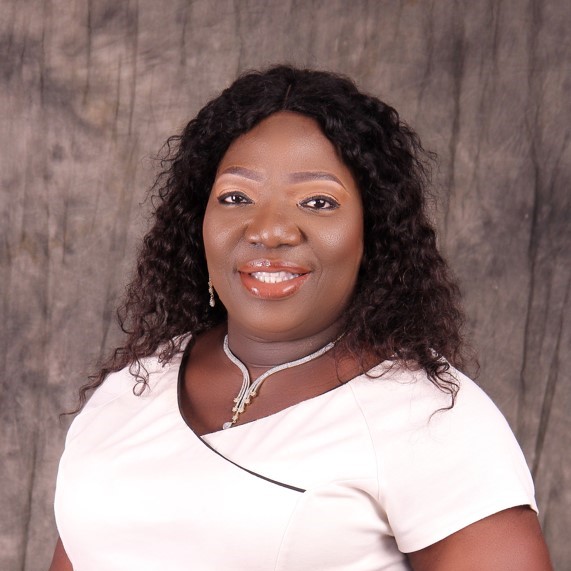
Prof Olubukola Babalola
South Africa
|Elected: 2021
Agricultural & Nutritional Sciences
View Profile
Agricultural & Nutritional Sciences
South Africa
Professor Olubukola Oluranti Babalola (Pr.Sci.Nat, MASSAF, FASLP, FTWAS, FAS, FAAS), the Vice President of the Organization for Women in Science for the Developing World (OWSD), is an NRF-rated scientist with over 20 years of research experience focusing on rhizosphere metagenomics, coupled with an MBA in General Management. She is the Research Director of the Food Security & Safety Focus Area at North-West University (NWU), South Africa, without reservation leading, as the Head and Principal Investigator a Microbial Biotechnology Research laboratory. Olubukola is a member of the editorial board for Microbiology Spectrum, Applied and Environmental Microbiology (American Society for Microbiology, USA), BMC Microbiology (Elsevier), and Biochemistry and Biophysics Reports (Elsevier). She is an International Advisor to F1000Research Plant Science Gateway, Nano-Horizon and Heliyon (Cell Press). Olubukola has received many awards, including being the finalist, GenderInSite 2020. Olubukola joined NWU in 2009; at NWU, Olubukola is passionate about capacity building and has graduated 28 doctoral fellows, 24 masters, and numerous Honors students. Several of her PhD products are now in the UK, Italy, America, Canada, Australia, Sweden, and also scattered over Africa. Prof Babalola is a prolific author with over 300 publications. She is an AAAS-TWAS Science diplomacy alumnus, impacting the world after the eye-opening awareness of policymaking, diplomacy, and diplomatic engagement. She is acting using the gender lens and forging collaborations with diplomats. She is a fellow of The Nigerian Academy of Science (NAS), The World Academy of Sciences (TWAS), and the Academy of Science of South Africa (ASSAF). Her wealth of international experience spans the Americas, Asia, Europe, and Oceania, 38 countries to be precise. She enjoys international collaborations across the globe, research grants, and many awards. Olubukola has an H-index of 50, with ~13,000 citations Olubukola is #1 in Africa for Soil Science and Plant Nutrition (https://www.adscientificindex.com/scientist.php?id=96341

Medical & Health Sciences
Nigeria
Abiodun Falodun,PhD is a renowned Professor of Medicinal and Natural Product Chemistry in the University of Benin and one of the foremost experts in anticancer natural product drug discovery with over 120 scientific papers.
He is a recipient of the prestigious Senior Fulbright Scholar Award (2013), (ICCBS-2008); visiting scholar to University of Rostock, Germany in 2011 & 2012, Deutsche Forschungsgemeinschaft (DFG), Visiting scholar to the South China Botanical Gardens (CAS, 2009) and the PSE grant award (2008).
He isolated the first chemical principle from an indigenous medicinal plant used for the management of threatened abortion, which earned him the May and Baker Professional Innovative Award (2007).
His grantsmanship accomplishments have been demonstrated by winning internal and external competitive research grants. He was PI for the $30,000.00 medicinal plant project, (2011-2015) funded by the USAID, in collaboration with the University of Mississippi, USA.
His group won a research grant to conduct research on the Identification and Development of Potential Drug from Nigerian Medicinal Plants against COVID-19 (NRF/SETI/HSW/00796, N45,244,000.00) funded by the National Research Fund.
He is the Head of the Natural Product Research Group, and has a google scholar citation of
https://scholar.google.com/citations?user=WSXal3gAAAAJ&hl=en&authuser=1
He was the Deputy Vice Chancellor (Academic) University of Benin and member of the University Governing Council (2014-2016); Rector, Edo State Polytechnic (2018-2023), and a fellow of the Institute of Safety Professionals of Nigeria among others.
He is the EIC, Tropical Journal of Natural Product Research. His academic deliverables include supervision of M.Sc and Ph.D students; external examiner to several universities in Nigeria, and a consultant to PAX Herbal Clinic Research laboratory.
Prof. Falodun is an alumnus of Harvard University, and a certified Public Leader from Harvard Kennedy School of Government, Harvard University, Boston, Massachusetts, USA.
He is married to Dr.(Mrs.) JE Falodun and they are blessed with children.
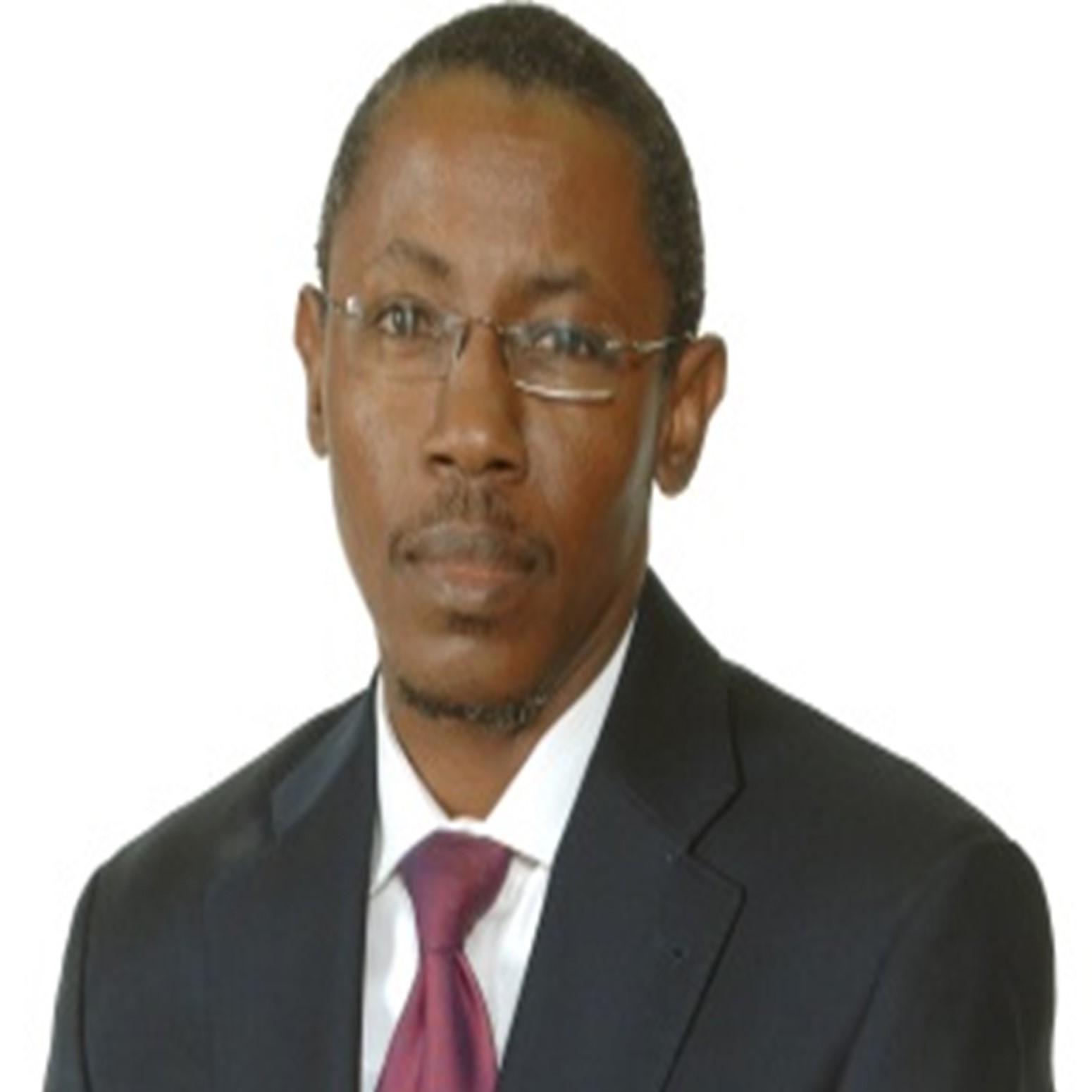
Chemical Sciences
South Africa
Prof Ebenso obtained his PhD in Physical Chemistry from the University of Calabar, Nigeria and has been lecturing in the university system since 1990. He started his university teaching career at the University of Calabar, Nigeria. He was the Acting Vice Rector (Research and Planning) and the Executive Dean of the Faculty of Natural and Agricultural Sciences at the entire North-West University in South Africa – Dec 31st 2019. He then took up appointment as Research Professor at the University of South Africa (Ist Feb 2021 till date).
His research interest span through physical chemistry (electrochemistry, kinetics, adsorption, thermodynamics of corrosion - and using some quantum chemical methods like density functional theory (DFT) and other semi-empirical methods to study corrosion inhibition efficiencies of compounds; extensive quantitative structure activity relationship studies (QSAR); Molecular dynamics/ Monte Carlo Simulation studies. He has also published papers on electrochemical sensors for detection of neurotransmitters and thermodynamics of solutions.
He is a member of many learned and professional societies namely Chemical Society of Nigeria (MCSN)., American Chemical Society (MACS)., NACE, International Corrosion Society, International Society of Electrochemistry, South African Chemical Institute (M.S.A. Chem. I.), South African Council for Natural Scientific Professions (SACNASP) (Pri. Sci. Nat), Fellow, Royal Society of Chemistry, UK (FRSC) and member of Academy of Science of South Africa (ASSAf).
He currently has an H-Index of 78 and over 20000 total citations from the Scopus Search Engine of Elsevier Science. According to the Elsevier SciVal Insights Report (2010-2015), he has a citation impact 10% above world average; Ebenso recently appeared in the top 10 list of prominent South African nanotechnology researchers/authors over a 20-year period (2000–2019), according to the South African Institute of Physics. He is also listed among the top 2% most-cited scientists in the world, according to Stanford University, together with the publishing house Elsevier and SciTech Strategies.
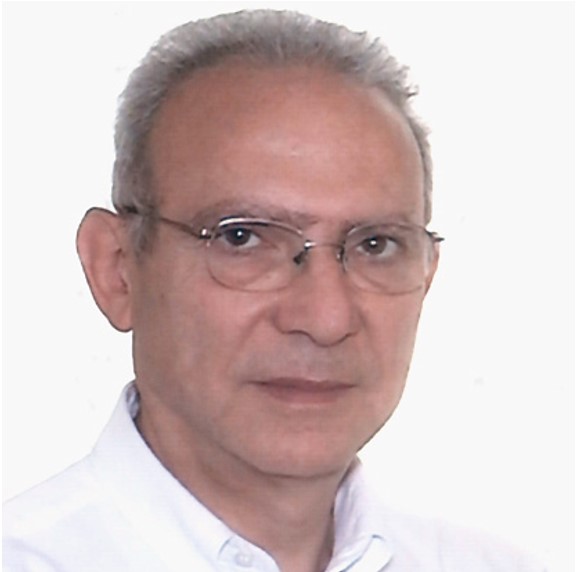
Chemical Sciences
Tunisia
Prof. Alain Krief was born in Tunisia in 1942 and possess both Tunisian and French nationalities. He is living in Belgium since 1972 and is presently Emeritus Professor (Unamur, 2008). Alain Krief received his PhD (1970) from the University of Paris under the supervision of the late Prof. J. Ficini and realized his post-doctorate at Harvard University (1970-1971) under the supervision Prof. E. J. Corey (Nobel Prize in Chemistry in 1990). He Joined the University of Namur where he created the department of Organic Chemistry (1972). He is also Adjunct Professor, HEJ Research Institute, University of Karachi, Pakistan and Senior Associate to the UNESCO UNISA Africa chair in Nanosciences & Nanotechnology (University of South Africa, Cape Town). He has been the Executive Director of the International Organization for Chemical Sciences in Development (IOCD, 2009-2020),the President of the Royal Chemical Society of Belgium (1993-1995), the President of the Janssen Prize for Creativity in Organic Synthesis (2002- 2008, Johnson & Johnson Company) and the President of the 40th Bürgenstock Conference (Switzerland, 2005).
Prof. Krief received a large number of honors and awards such as Prize of French Academy of Sciences for his outstanding research work on steroid biosynthesis (1985, France), International Prize Wernaers for knowledge broadcasting (1999, Belgium), Japan Society for the Promotion of Science (1996, Japan). He was Visiting Professor at Université Libre de Bruxelles (Belgium), University of Reims and University of Strasbourg (France), University of Bochum, University of Giessen, University of Hamburg, University of Honeheim, University of Stuttgart (Germany); Technion, Haifa, (Israel), Japan Society for the Promotion of Science (Japan), University of Karachi (Pakistan) and French speaking Swiss Universities (Switzerland).
Prof. Krief made outstanding contributions to organic chemistry, in particular to selenium organic chemistry. His research activities cover:
- Synthesis of inorganic- and organoselenium reagents;
- Synthesis of biologically active compounds such as pyrethroid insecticides, anti-aging agents, MAO inhibitors, nitrogen fixation compounds, Antiviral compounds (anti Aids, commercialized by Johnson&Johnson);
- Bioorganic chemistry: study of the mechanism of steroid biosynthesis; generation of antibodies directed towards enantioselective transformations;
- Chemical knowledge organization and transfer including e-learning, ontology building, semantic rich description of chemical structures;
- Acting with words to collaboratively promote & reform chemical sciences. He has published 372 scientific papers including in high impact journals such as Nature Chemistry, Nature Reviews Chemistry, Chemical Reviews, Chem. Comm., Angew. Chem. Publications: https://scholar.google.com/citations?user=XCX6DKgAAAAJ&hl=en
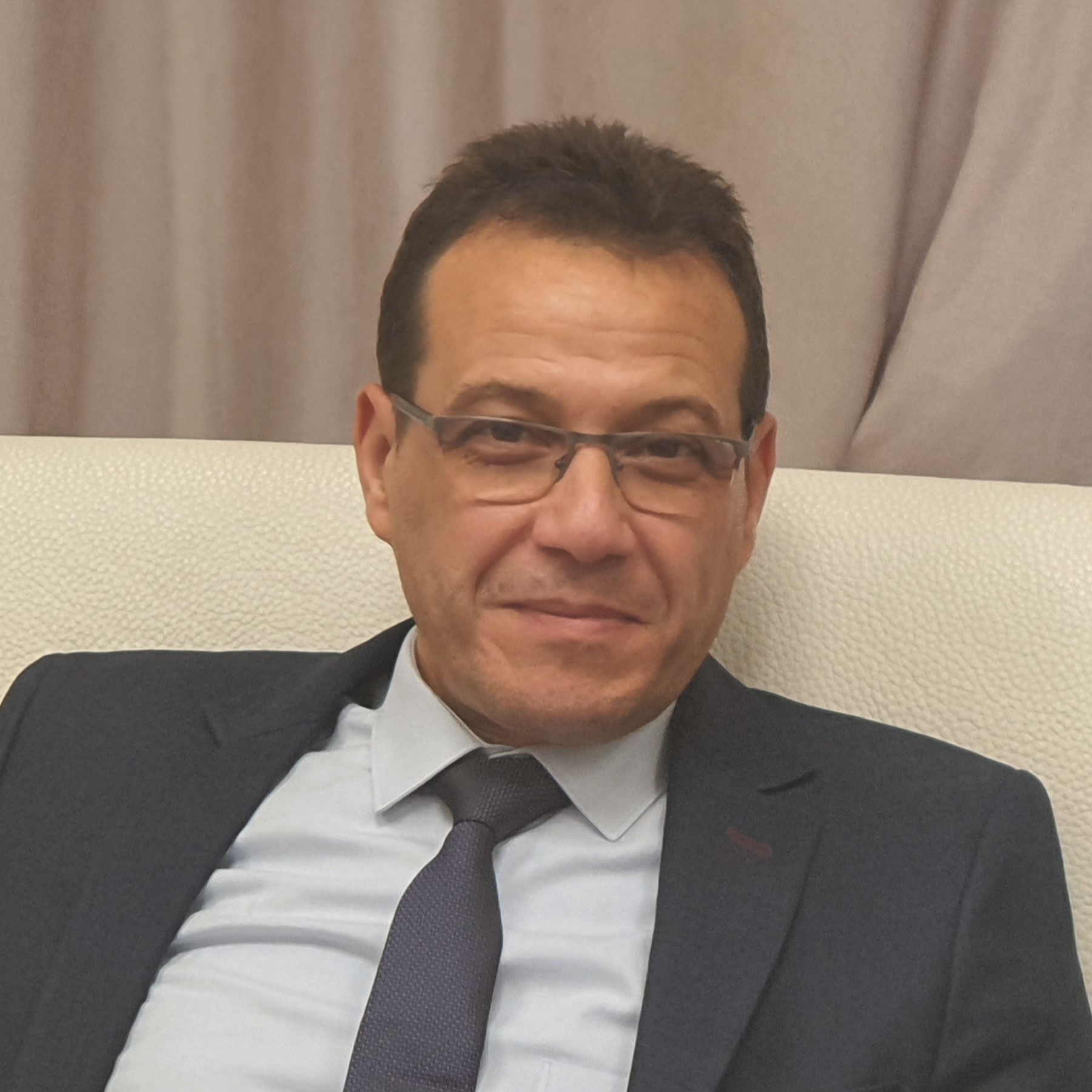
Biosciences
Algeria
Mohamed Hichem KARA is a teacher and researcher at the University of Annaba in Algeria. Holder of a PhD in biological oceanography from the University of Science and Technology Houari Boumediène of Algiers in 1998, his scientific activities are oriented towards marine and continental hydrobiology with a particular interest for biodiversity, fishing, aquaculture and their interactions with human activities (pollution, invasive species and global warming). In 2003, he founded the Marine Bioressources laboratory. In 2007 and 2010, he respectively initiated a Master's degree and a Doctorate in coastal environment and aquatic bioresources. His team has participated in 15 international research programs (Tassili, PHC Maghreb, AUF, CNRS-PICS, EU-FP7, US-AID, Envi-Med, Amidex, Key initiative Muse, COST). He is the author of a hundred of scientific articles (Scopus h index = 16), 5 books and 2 book chapters.
Mohamed Hichem Kara is an expert with international institutions (AUF, FAO, UNEP/MAP, IUCN, EU) and has contributed to the establishment of thematic networks at national, Maghreb and international level. He is also involved in the design of international strategies for marine management and policy.
In 2015, Mohamed Hichem Kara is admitted as a founding member of the Algerian Academy of Science and Technology (AAST) of which he is currently the Vice-President. He is co-chairman of the Living Resources and Marine Ecosystems Committee of the CIESM (Mediterranean Scientific Commission) and recently joined the Pan-African Council for Scientific Research as a member.
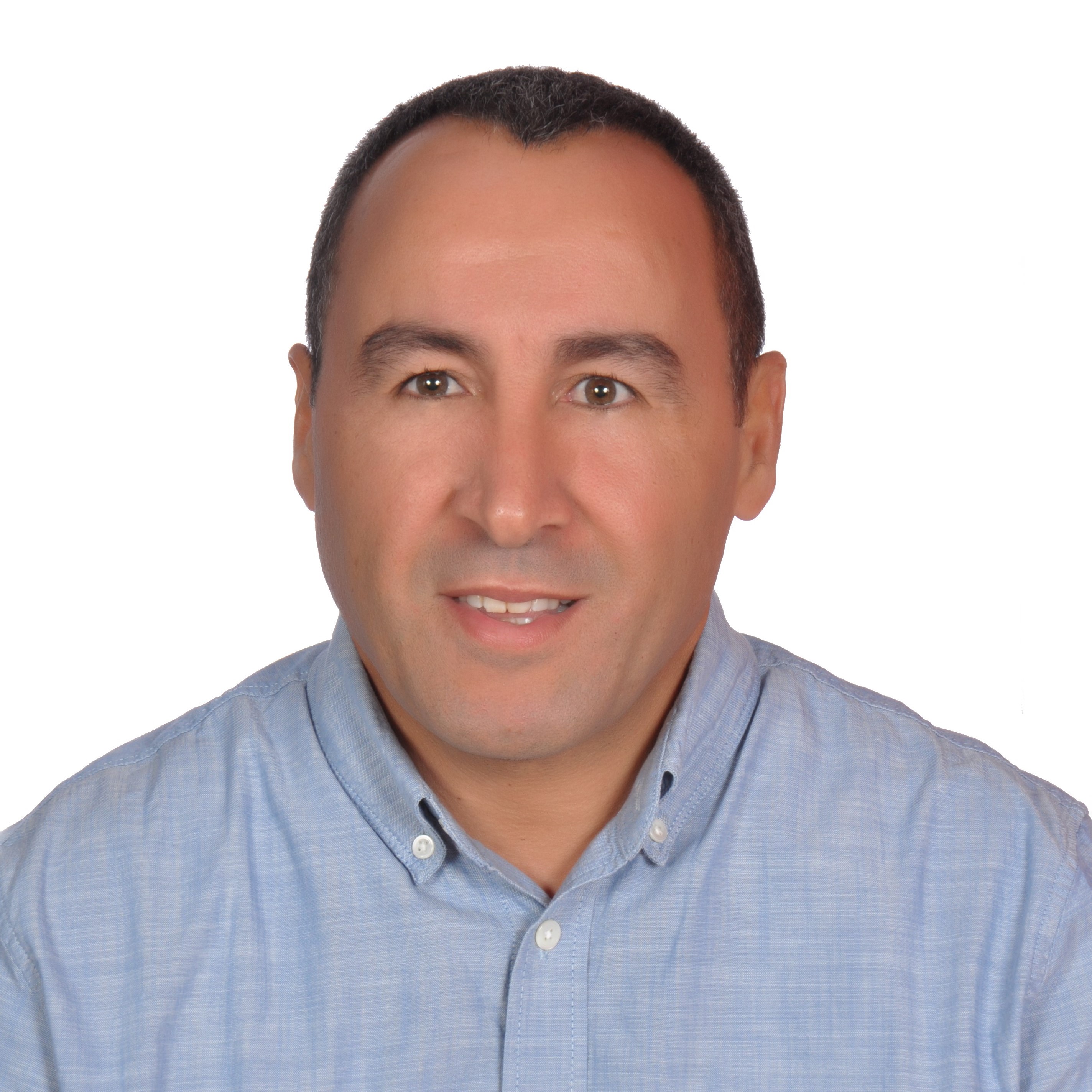
Physical Sciences
Morocco
Tayalati started his career as an experimental high-energy physicist with a Ph.D. from the University Mohammed First in Morocco. He pursued the field in the ANTARES collaboration. He have been involved in the early preparation and deployment of the ANTARES neutrino telescope and was for many years the convener of the exotic physics group. ANTARES has allowed to reach very competitive limits on the flux of Magnetic Monopoles and Nuclearites particles in the Universe.
Yahya spent more than twenty years of his career with the ATLAS collaboration, covering many topics ranging from hardware projects and detector operations to software development and physics analysis. Yahya’s first important contribution is highlighted through his role in several steps of the construction, commissioning, and operation of the ATLAS Liquid Argon Presampler, This detector has proven to be very efficient and it is now widely used in all ATLAS physics measurements. Furthermore, He was also involved in several physics analyses, where the most recent achievement consists of the first observation of Light-by-light scattering. The observation by the ATLAS experiment of this extremely rare process provides an interesting way to probe physics beyond the standard model.
Yahya started recently a collaboration with the new KM3NeT neutrino telescope, a large research infrastructure, in construction in the Mediterranean sea. A productions line of optical modules for KM3NeT is successfully operating in Morocco. In addition, Yahya has initiated the participation of Morocco in the High Granularity Timing Detector, a new system part of the ATLAS upgrade. The proposed project is at the front-line of experimental particle physics.
Yahya is an honorary fellow of the Islamic World Academy of Sciences and has been awarded in 2021 the prestigious Mustafa Prize for all his contributions to researches in physics as well as promoting scientific development in Morocco and beyond.
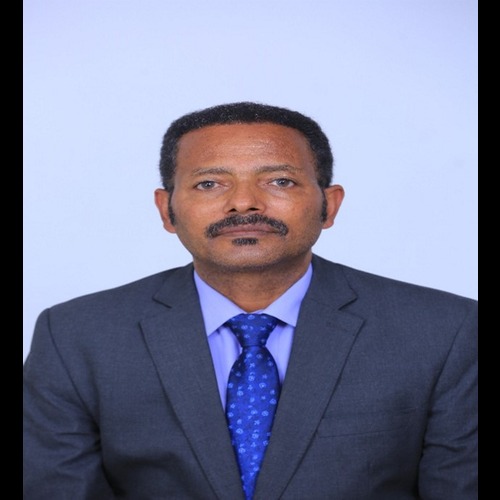
Agricultural & Nutritional Sciences
Ethiopia
Dr Tadele Tefera is currently Country Head of ICIPE (International Centre of Insect Physiology and Ecology), Ethiopia. He is an entomologist, obtained his PhD from Stellenbosch University, MSc and BSc from Haramaya University. He was Humboldt fellow at University of Göttingen, Germany. He mentored over 30 MSc and PhD students, authored over 100 publications and has a patent right in biopesticide. Dr Tefera was Associate Professor and Director of Research at Haramaya University. Dr Tefera was listed in The World’s Top 2% scientists released by Stanford University in 2021, scientists whose published papers have accelerated progress in their respective fields and influenced the productivity of other scientists. Dr Tefera served in international scientific bodies including Governing Board Member of The International Association for Plant Protection Sciences; editor-in-chief of the East African Journal of Sciences and Associate Editor of Indian Journal of Entomology. Dr Tefera made considerable contributions in the development of postharvest management technologies and crop specific IPM techniques for major crops. Dr Tefera worked as a scientist at CIMMYT (International Maize and Wheat Improvement Center), he was a team member of CIMMYT maize breeders who released 8 high yielding, drought tolerant, pest resistant maize inbred lines and hybrids, in collaboration with and national maize program in east Africa, from 2010-2013. Under the leadership of Dr Tefera ICIPE Ethiopia received an award of excellence given in 2018 by the State Minster, Ministry of Agriculture, Ethiopia, for outstanding partnership and contributions in promotion of climate smart push-pull technology and contributions in commercial beekeeping development in Ethiopia. His team was awarded best team of the year 2017 by ICIPE Director General for strong leadership and outstanding efforts in expanding ICIPE’s programs in Ethiopia and beyond. Dr Tefera was awarded a fellowship by the Ethiopian Academy of Sciences in 2022 for his outstanding achievements.
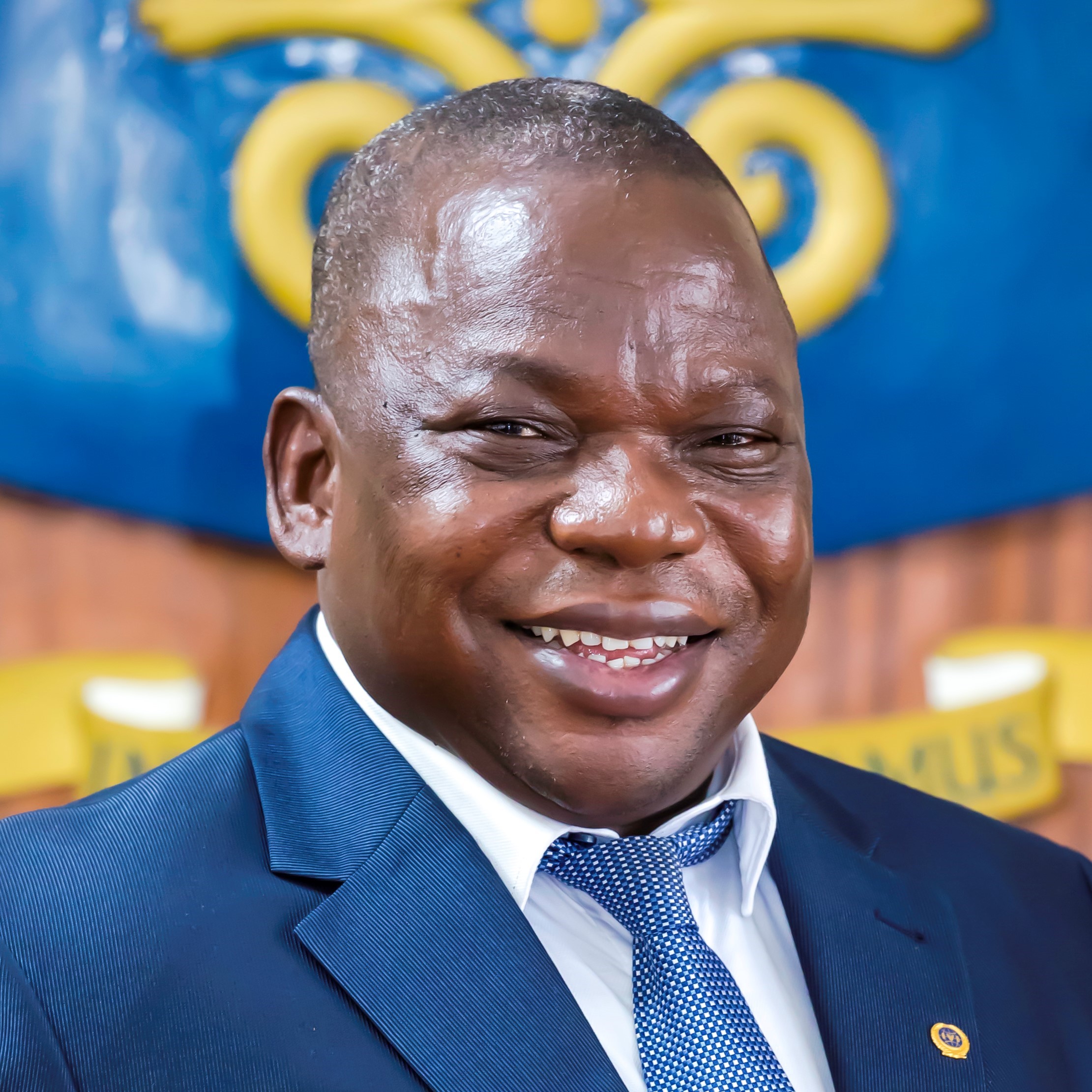
Medical & Health Sciences
Ghana
Julius Fobil is a Professor of environmental health with an outstanding academic career; having contributed significantly to the field of environmental epidemiology in Ghana and beyond. He has close to two hundred (>200) peer review publications in the field and has trained more 80 mentees at undergraduate through doctoral to postdoctoral levels. He is a fellow of the Collegium Ramazzini, an international academy of internationally renowned fellows in environmental and occupational health and a fellow of Ghana Academy of Arts and Sciences. He is the Provost of the University of Ghana’s College of Health Sciences; having previously served as Dean its School of Public Health, He also an Associate Scientist at the Bernhard Nocht Institute for Tropical Medicine in Hamburg. His research focuses on environmental exposure assessment, urban environmental health in low-income economies and more recently, he has been involved in research capacity building in environmental and occupational health in West and Central Africa region. He can be reached via email at: jfobil@ug.edu.gh.
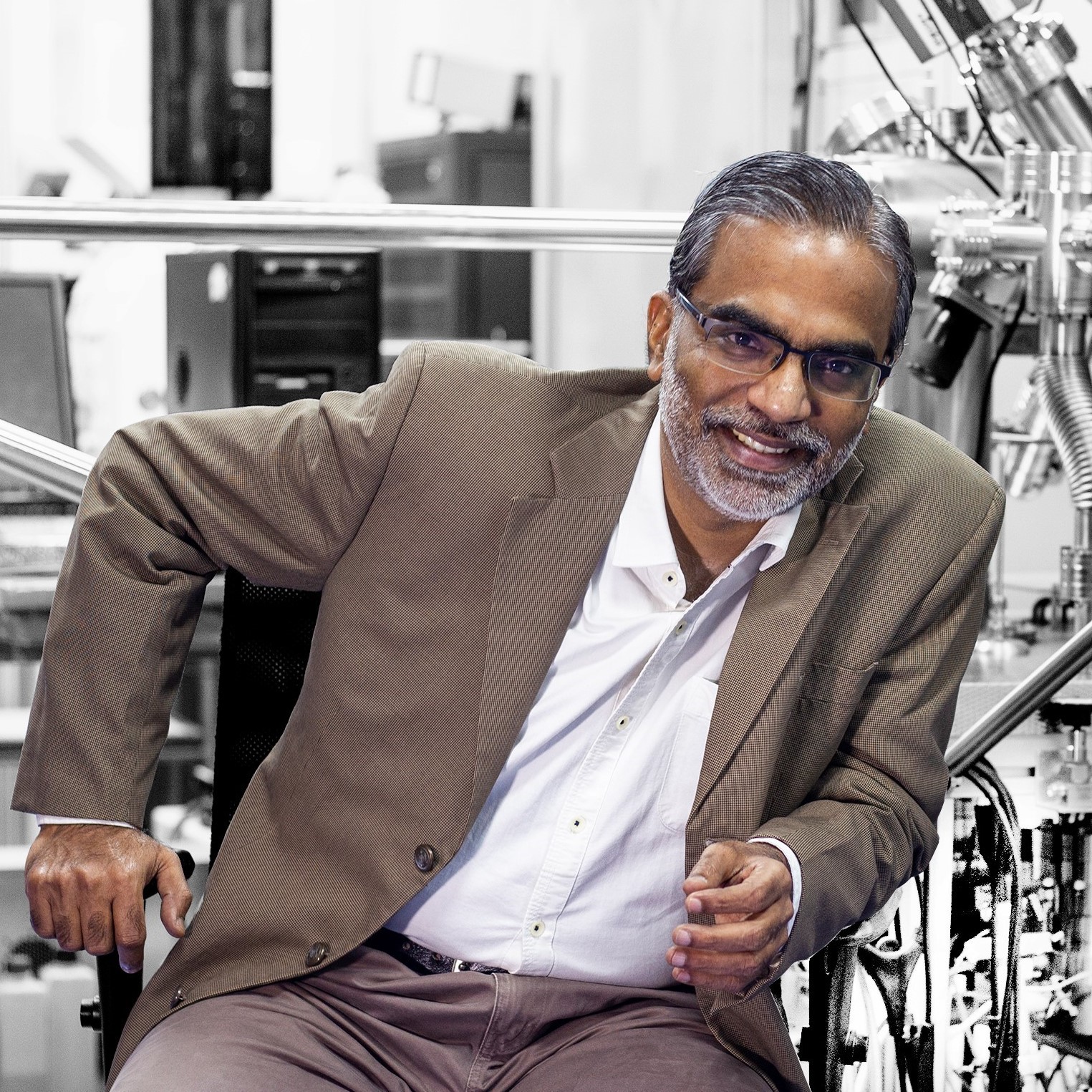
Chemical Sciences
India
Thalappil Pradeep is an Institute Professor, the Deepak Parekh Institute Chair Professor and a Professor of Chemistry at the Indian Institute of Technology Madras, Chennai, India. He studied at the University of Calicut, Indian Institute of Science, UC Berkeley, and Purdue. His research interests are in molecular and nanoscale materials. He is an author of over 525 papers in journals and is an inventor of over 100 patents or patent applications. In addition to the work on advanced materials, he is involved in the development of affordable technologies for drinking water purification. His pesticide removal technology has reached about 10 million people. Along with his associates, he has incubated seven companies and three of them have production units. His arsenic removal technology, approved for national implementation, is delivering arsenic free water to about 1.2 million people every day. He is a recipient of several awards including the Shanti Swaroop Bhatnagar Prize, The World Academy of Sciences (TWAS) prize, Padma Shri, Nikkei Asia Prize and the Prince Sultan Bin Abdulaziz International Prize for Water. He is a Fellow of all the science and engineering academies of India, The World Academy of Sciences and American Association for the Advancement of Science. He is a distinguished professor in a few institutions in India and is also on the graduate faculty of Purdue University. He is the author of several books and is many important journals and is an associate editor of ACS Sustainable Chemistry & Engineering. He has authored popular science books in Malayalam and is the recipient of Kerala Sahitya Akademi Award for knowledge literature. He has received the Lifetime Achievement Research Award of IIT Madras and Distinguished Alumnus Award of IISc. As part of his philanthropic activities, he supports a school in his village where 500 students are on rolls.
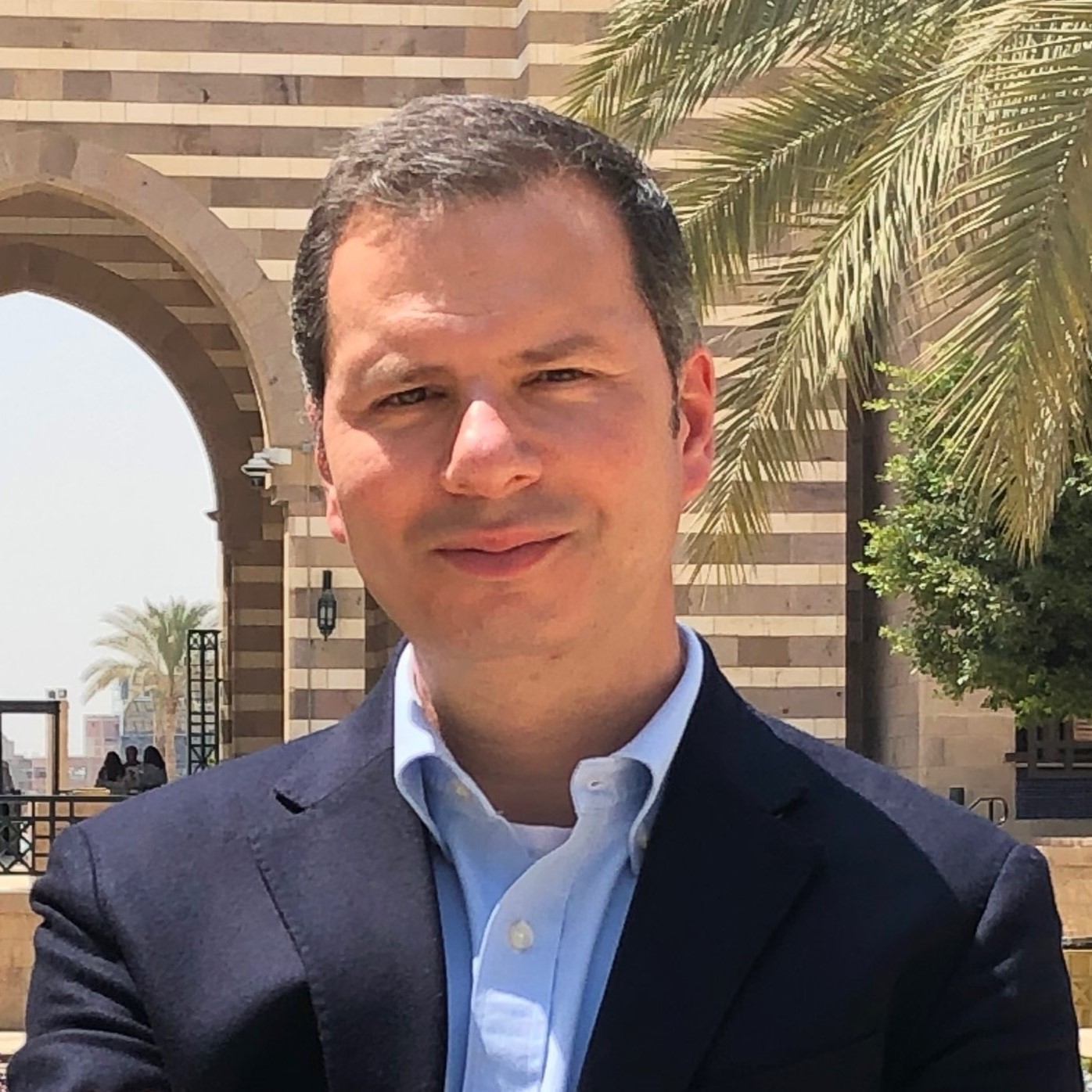
Biosciences
Egypt
Dr. Ahmed Moustafa graduated with a B.Sc. in computer science from Alexandria University. Then he earned his Ph.D. in computational genetics from the University of Iowa. After that, Dr. Moustafa conducted his postdoctoral fellowship at the J. Craig Venter Institute (JCVI). Afterward, he joined the American University in Cairo (AUC) as a bioinformatics faculty member in the Department of Biology. Then, Dr. Moustafa served as the director of the Biotechnology Graduate Program. Currently, he is serving as the chair of the Biology Department at AUC. In addition, Dr. Moustafa is affiliated with JCVI as an adjunct scientist. He is also the head of the bioinformatics department at the Egypt Center for Research and Regenerative Medicine (ECRRM). More recently, Dr. Moustafa was elected to the national Egyptian Genome Project (EGP) scientific committee. Dr. Moustafa’s work spans environmental microbial genomics to human genomics and the microbiome, employing machine learning and genome analytics to elucidate functional characteristics of our genetic blueprints and our surrounding organisms. Dr. Moustafa has published more than fifty articles in prominent scientific journals. In addition, Dr. Moustafa contributed to developing open-source bioinformatics tools and methodologies, as well as training materials and courses. Besides scientific research, his other passion is teaching young researchers and providing education in bioinformatics and genome data science.

Physical Sciences
South Africa
A PhD from Columbia University, Bruce Mellado, is a Professor at the University of the Witwatersrand, a Senior Researcher of iThemba LABS and serves as the Director of the Institute for Collider Particle Physics. Currently, he is the Chairperson of the Institutional Board of the Tile Calorimeter at the ATLAS experiment at the European laboratory CERN. He was the National Contact Physicist of South Africa at the ATLAS experiment and the co-Chair of the Nuclear Particle and Radiation Division of South African Institute of Physics. He is the recipient of several awards and fellowships, including the TW Kambule-NSTF Award for Research in 2021 and the Vice-Chancellor Award for Research in 2022. Prof. Mellado is an Internationally acclaimed, B1 rated researcher of the National Research Foundation.
Prof. Mellado is an expert on the Higgs boson – a sub-atomic particle that is thought to give matter its mass – and was a leading participant in its discovery that was announced in 2012 and led to the Nobel Prize in Physics being awarded in 2013 to François Englert and Peter W. Higgs. Among his contributions here is the proposal and demonstration that Higgs boson candidates can be classified according to the presence of hadronic jets. Prof. Mellado is also known for his seminal contributions to the proposal of the Large Hadron Electron Collider as a Higgs boson facility.
Prof. Mellado is also the Co-President of the Africa-Canada Artificial Intelligence Data Modelling Consortium.
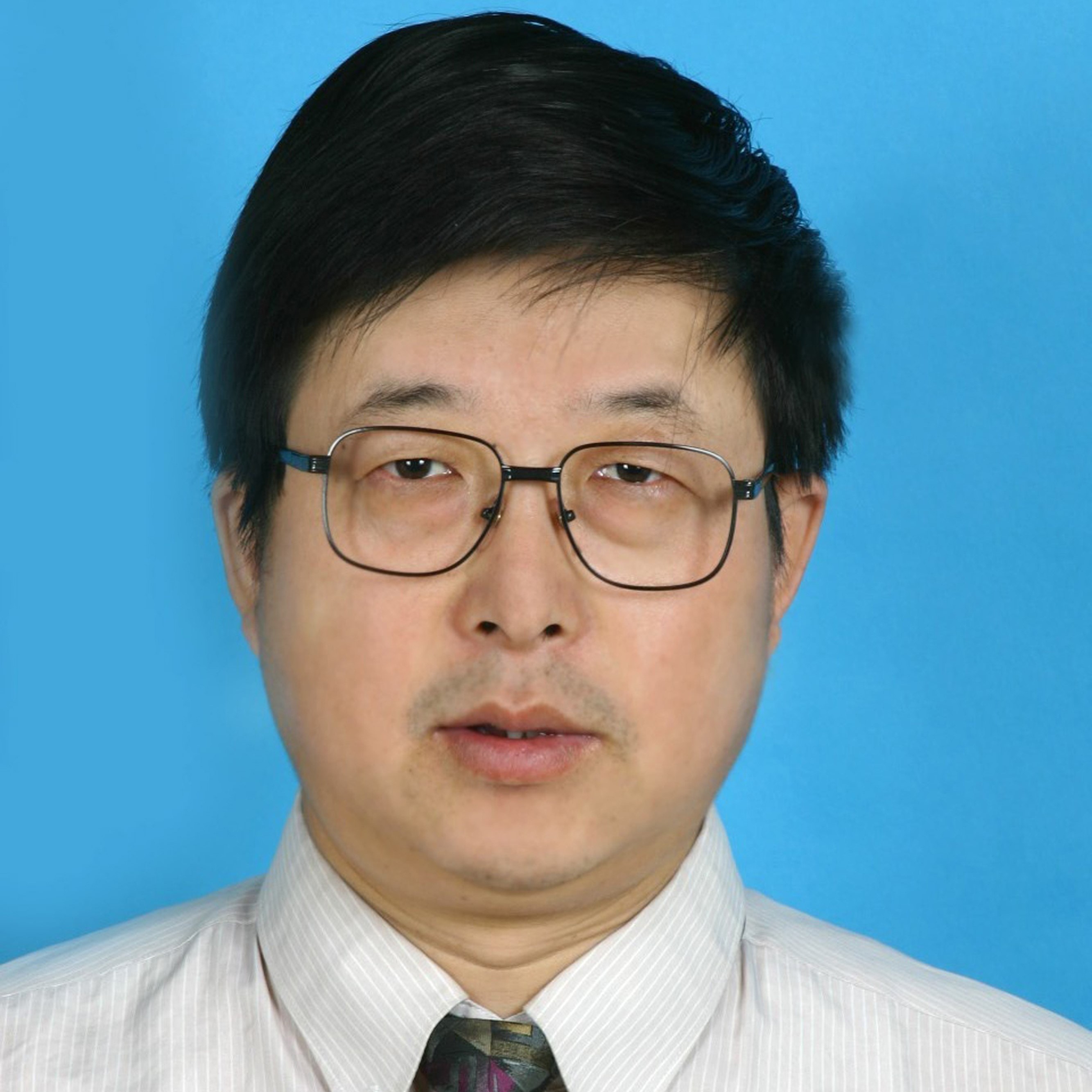
Agricultural & Nutritional Sciences
China
Dr. Tianyu Wang is Distinguished Professor, Senior Chief Scientist, at the Institute of Crop Science, Chinese Academy of Agricultural Sciences (CAAS). Dr. Wang’s scientific fields focus at crop germplasm, genetics and breeding. His career has been devoted to solving problems in millet and corn production by excavating and utilizing excellent germplasm resources. His work in foxtail millet led to the doubling of its production efficiency, and promoted revolutionary changes in cultivation methods, which have immensely benefited China, and countries around the world. Dr, Wang has subsequently been engaged in promoting scientific and technological progress in the maize research, by enhancing resistance to biological and abiotic stress. His research and scientific work, active advocating, broad research network and government actions have worked towards transformation of agriculture by utilization of more than 1.2 million hectare of foxtail millet, and 25 million hectares of maize. His scientific work vastly fostered the understanding from the phenotypical characterization ecological evaluation to molecular biology and genomic levels of the maize and foxtail millet. Dr. Wang has authored more than 280 research articles in academic journals and some flagship papers were selected as one of the 100 Best Paper in China in 2017, F5000 and so on. His papers have been cited over 6,800 times.
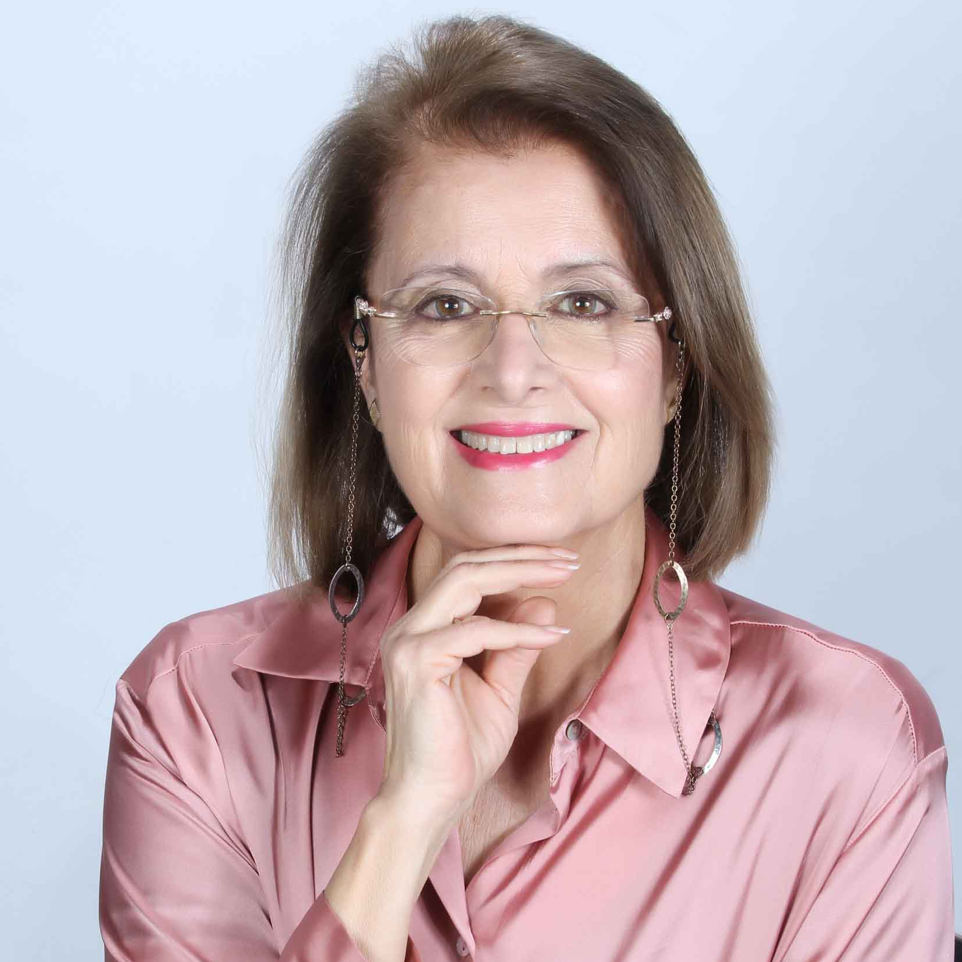
Medical & Health Sciences
Tunisia
Professor Habiba Bouhamed Chaabouni is emerita of medicine at the University of Tunis El Manar. She is fellow of ‘’French National Academy of Medicine’’ and fellow of ‘’ Tunisian Academy of Science and Arts’’, former director of science department, and laureate of the prestigious ‘’L'Oréal-UNESCO award’’ for Women in Science.
Physician and scientific researcher, Dr. Bouhamed is a pioneer in human genetics who faced the challenge of developing genetics in medical and health areas and succeeded to establish very early the national medical genetics board. Graduated in medicine and science, she put together her knowledge and skills for the benefice of students, patients and community. She aimed to demystify genetic and hereditary disorders, she founded and directed for many years the first specific clinical department in the region to offer adequate facilities to patients and families, (diagnosis, counseling, management as a first step to personalized medicine). As director of genetics department at the Tunis faculty of medicine, she developed program for undergraduate students and later a master degree in human genetics and PhD degree in health biology. Her research activities started on consanguinity risks of recessive disorders and complex diseases. Then she carried out several molecular studies focusing on common and rare genetic diseases and developed her expertise in chromosomal and molecular research. Director of laboratory research in human genetics, she empowered local scientific research and established an international collaboration leading to the identification of novel genes, mutations, chromosomal abnormalities and disorders. Elected as member of the first Mediterranean Science Team-MEDNIGHT-August 2021. Member of the five experts’ committee to implement the Montpellier Advanced Knowledge Institute on Transitions (MAK’IT). Member of the Arab Network of Women in Science. She received several awards for her groundbreaking achievements and contributions to scientific progress in Tunisia, Africa, Arab World and Mediterranean region.
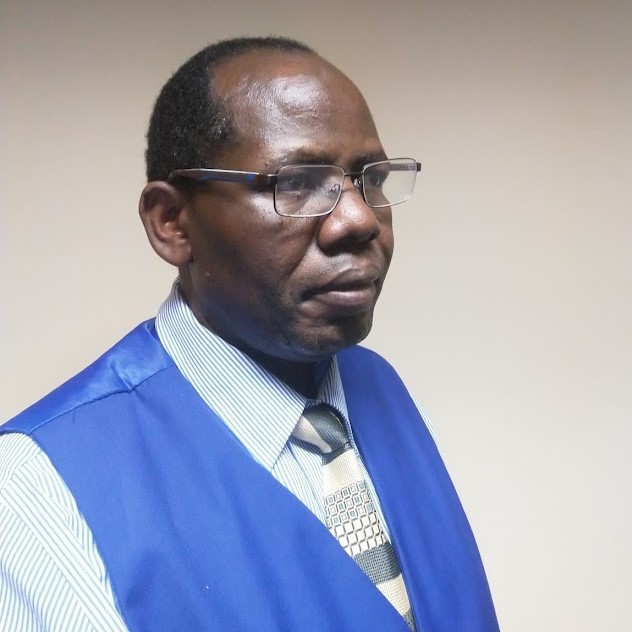
Nicholas Mbaya Odhiambo
Kenya
|Elected: 2021
Cultural Sciences, Humanities & Social Sciences
View Profile
Cultural Sciences, Humanities & Social Sciences
Kenya
Prof Nicholas M. Odhiambo holds a PhD (Economics) degree from the University of Stellenbosch. His research profile is broad, rich and multifaceted. His research has made a significant contribution to the scholarly body of knowledge. In the past 22 years, he has published a number of papers in various international journals. Of these publications, more than 330 articles have been published in more than 140 reputable/peer-reviewed/refereed journals. Prof Odhiambo is currently ranked among the top economics authors in the world by IDEAS/RePEc, the largest bibliographic database dedicated to Economics (hosted by the Research Division of the Federal Reserve Bank of St. Louis, USA). According to RePEc/IDEAS (August 2022), he is ranked number two in South Africa and number three in Africa based on a number of criteria. He is also the second most-cited economics author in Africa, based on the number of Citations, Weighted by the Number of Authors. Internationally, Prof Odhiambo is currently ranked number 31 worldwide by RePEc/IDEAS (as of November 2022) based on the Number of Works. His Google Scholar h-index and i10-index are currently 48 and 164, respectively with total citations of 10110; while his Scopus h-Index, based on 260 publications, is 30 (November 2022). Prof Odhiambo, who is also a fellow of the Royal Statistical Society, is currently serving as Associate Editor: Journal of African Development. He is also a member of International Advisory Board/Editorial Board Member of seven internationally recognised journals. He has also served as Guest Editor for Energy Exploration & Exploitation; Journal of Policy Research in Tourism, Leisure and Events; Telecommunications Policy; and African Journal of Economic and Management Sciences (AJEMS). Prof Odhiambo is currently serving as Professor of Economics and Head of Macroeconomic Policy Analysis research programme at the University of South Africa (UNISA) – a programme which he developed in 2012.
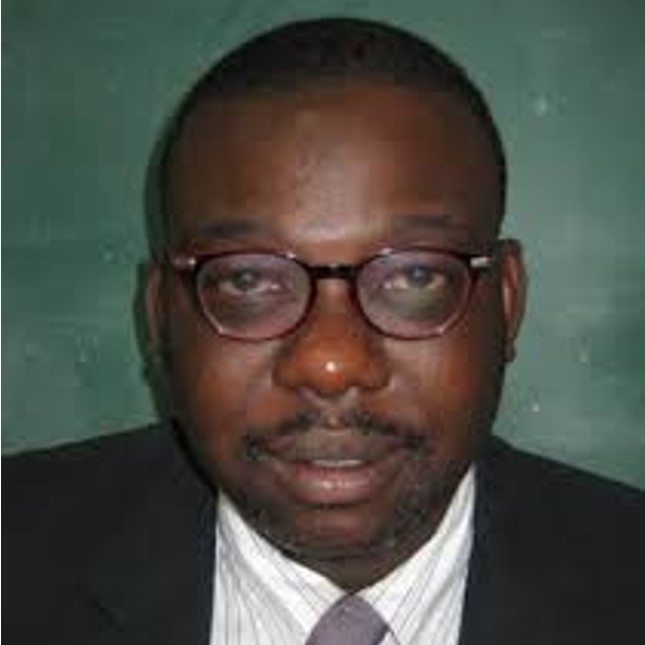
Biosciences
Nigeria
Prof. Ganiyu Oboh hails from Ibie-Nafe, Edo-State, Nigeria. He holds PhD in Applied Biochemistry (2002) from the Federal University of Technology, Akure, Nigeria, and has enjoyed postdoctoral trainings from laboratories in Brazil, Germany and China. He joined the service of the Department of Biochemistry, Federal University of Technology, Akure, Nigeria in 1997 as a Graduate Assistant, from where he rose to the position of a Professor in 2012. He has served in different administrative capacities including Head of Biochemistry Department, Sub-Dean, School of Postgraduate Studies and Director, Centre for Research and Development of the university.
Prof Oboh’s research works of developing functional food products have become focal points in the search for complementary/alternative therapies for the management of several diseases; this has attracted lots of collaborators and research grants within and outside Nigeria. He presently has nine (9) patents and three (3) products in the market. He has published over 500 research articles in refereed journals both locally and internationally, as well as several published conferences proceedings and book chapters. Some of his academic web-metric rankings currently shows he has an h-index of 63 and 15,615 citations in Google Scholar and h-index of 46 and 8,745 citations in Scopus. Furthermore, Prof Oboh was ranked among the top 2% Scientist in the World, top 10 in Nigeria and No.1 Food Scientist in Nigeria in the ranking released by Standford University, USA. In the aspect of human capacity development, he has trained several graduate students including over eighty masters (80) and thirty- two (32) Ph. D graduates. He is presently the National President/ Convener, Pharma-Foods Congress, an annual event of Functional Foods and Nutraceuticals Association of Nigeria. He was an Associate of Abdus Salam-ICTP, Alexander von Humboldt scholar and a fellow of the Nigerian Academy of Sciences.
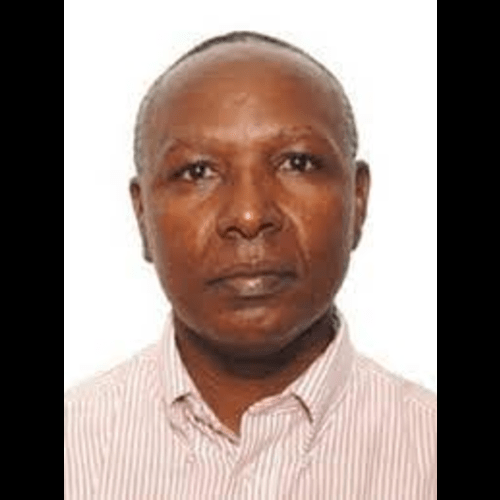
Biosciences
Kenya
Dr. Kariuki is a Senior Principal Research Scientist at the Kenya Medical Research Institute/Centre for Global Health Research (KEMRI/CGHR) and the Malaria Branch Chief of the KEMRI, CDC and Liverpool School of Tropical Medicine (LSTM) Collaborative Programme in Kisumu, Kenya. He has more than 30 years of hands-on experience in human health research focusing on the epidemiology and mechanisms of acquired immunity to infectious diseases, health systems research, clinical trials, entomology, disease surveillance, monitoring and evaluation and capacity strengthening. He is the recipient of several ongoing and completed multi-year research grants that addresses key areas of public health research . Dr. Kariuki has been involved in research that has influenced policy in malaria control -The use of Insectide-treated bednets for malaria control (Western Kenya bednet trial), use of low dose folic acid in pregnant women receiving sulfadoxine-pyrimethamine (SP) in malaria endemic areas, the recently WHO-recommended RTS,S malaria vaccine. He possesses strong scientific, leadership and management skills through development and review of proposals, implementation of research projects, data analysis/interpretation, mentoring and supervision of graduate students and staff at different levels, dissemination of research findings and preparation/review of manuscripts. Dr. Kariuki has established strong linkages and collaborations with biomedical scientists in Africa, Asia, Latin America, Europe and USA. In his current position as the Chief of the Malaria Branch, he oversees and provide scientific leadership and administrative support to more than 500 staff working in more than 20 research projects. He is the chair of the National Malaria Control Programme Operations Research Committee of Experts and has extensive experience in translation of research to policy. He is a reviewer of several international peer-reviewed journals including: The Lancet, Lancet Infectious Diseases, Malaria Journal, Antimicrobial Agents and Chemotherapy, Parasites and Vectors, Global Health Action and Journal of Public Health and Infection.
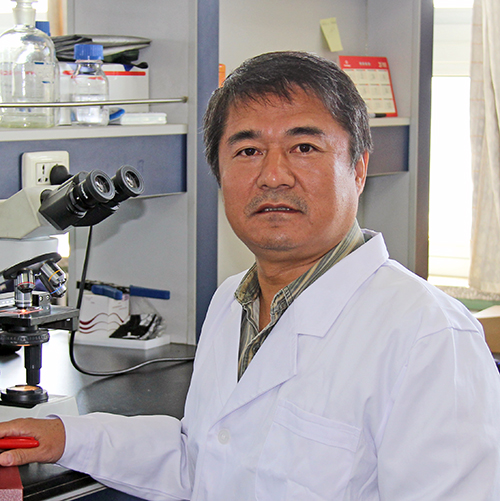
Agricultural & Nutritional Sciences
China
Dr. Wu graduated with his bachelor degree from Henan Agricultural University in 1984. In 1987, he received his Master degree from Zhejiang Agricultural University. From 1987 to 1992, he worked as a researcher in Henan Academy of Agricultural Sciences. In 1994, he obtained his PhD from Chinese Academy of Agricultural Sciences (CAAS), and then he worked for the Institute of Plant Protection of CAAS as an associate professor / professor (1994-2002) and later as director general / professor (2003-2011). During 2012-2021, he took the position of the vice President of CAAS, and was appointed President of CAAS in late 2021.
Dr. Wu’s research focuses on population ecology and management of insect pest. Having published more than 300 papers in the referred journals, including Nature and Science, Dr. Wu can be considered as one of the most productive entomologists in the world. He has made significant academic contributions to the field of agricultural entomology, especially in the research areas of population monitoring and integrated management for several important pests worldwide, such as cotton bollworm, plant bug and fall armyworm. His scientific findings have not only contributed to academics, but also made significant impacts on pest management in crop production. The integrated pest management strategies developed by his lab, in applying the principles of agro-ecology and moving towards the concept of a sustainable agriculture, have been widely used for insect pest management in Chinese agricultural system, which plays very important roles in reducing the utilisation of insecticides and farming risk and improving economic output of these crops.
Dr. Wu sits on numerous academic organisations and professional panels and committees, including the vice chair of the Global Fall Armyworm Steering Committee of FAO, chair of Plant Protection Expert committees of China, and honorary president of China Society of Plant Protection.
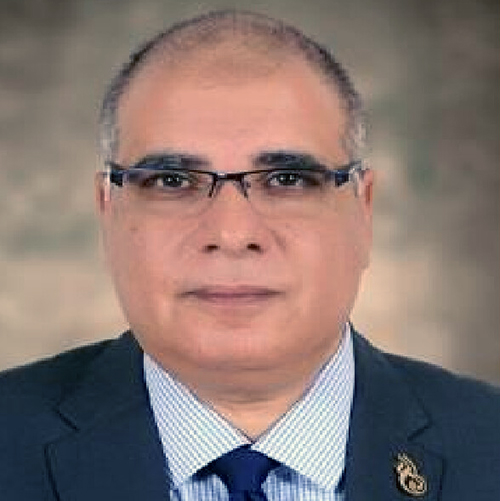
Mathematical Sciences
Egypt
Prof. Mekheimer born in Egypt 1963, received a B.Sc. in Mathematics from Ain Shams University Cairo (1984), M.Sc. in Thermo-Elasticity from Al-Azhar University (1990), completed his doctorate in Bio-fluid Mechanics at Al-Azhar University in (1994). Currently, he is a professor of Applied Mathematics and Vice Dean of Research and Post-graduate Studies at the Faculty of Science (Men), Al-Azhar University, Egypt. He is leading an active group in his field of interest "Bio-Fluids". The roles played by Prof. Mekheimer, have many facets: In the scientific research part he has embarked on some fundamental aspects of the peristaltic transport of physiological fluids, blood flow in stenotic arteries, and atherosclerosis catheterization. Many of his student's research earned the prize of the best M. Sc Thesis. & Ph D. Thesis from the Egyptian Mathematical Society (2008, 2012, 2013,2019, 2020). He is Advisory Board Member of the International Islamic Institute for Population Studies and Research, Al-Azhar University 2020, Editor-in-Chief of Al-Azhar Bulletin of Sciences Journal, and Associated Editor of International Journals (Journal of the Egyptian Mathematical Society (JOEMS), SN Applied Sciences, Frontiers in Mathematical and Statistical Physics).
Due to the high quality, high competitivity, and importance of the research of Prof. Mekheimer he has been highly cited (3647) and H-index (33) Scopus Citation Overview: https://www.scopus.com/authid/detail.uri?authorId=6602385344. Consequently, he has earned one of the State highest prizes namely the State Awards of Excellence Prize of Basic Science awarded by the ASRT (Academy of Scientific Research and Technology ) of Egypt 2018, besides other certificates from the Egyptian Mathematical Society (2008, 2012, 2013,2019, 2020) as well as other prizes from Taif University Saudi Arabia, namely the citation prize for Engineering and Basic Science branch 2012, 2013, and 2014 and OBADA-PRIZE for distinguished researcher 2020-by Natural Science Publishing cooperation. Also, the Order of the Republic-First Class Medal ” Science & Arts” from the Egyptian State 2019. Recently Prof Mekheimer was induced in the “Top 2% of world scientists” list published by Stanford University U.S.A., according to the updated science-wide author databases of standardized citation indicator, 2020 & 2021
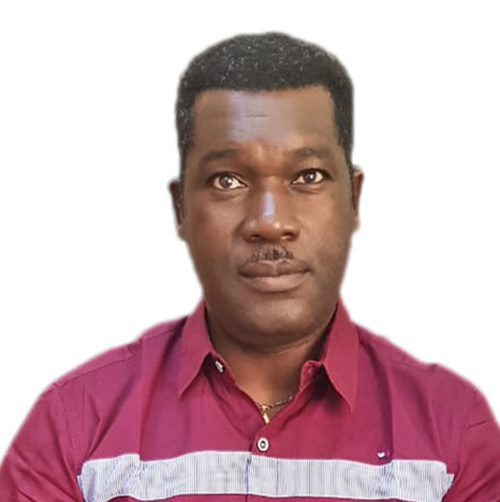
Biosciences
Burkina Faso
Diabate Abdoulaye is a vector ecologist. He owned a PhD degree from the University of Montpellier, France and spent 4 years as a postdoc fellow at NIH in the US. His research activities proceed along with two different but complementary directions. First, it involves insecticide resistance and its management and second, it is focused on population biology, ecological studies on phenotypic variation within and between populations of mosquitoes and analyses of its genetic and environmental sources. He is particularly interested in mosquito male biology and related transgenic and sterile male’s approaches to control vector diseases. He has been an invited speaker in several prestigious universities including the Harvard University and has given inspirational talks at the Grand Challenges annual conference in London 2016 and in Addis Ababa 2019. He is the recipient of the Royal Society Pfizer award in 2013, the PAMCA life achievement Award in 2019 and the AAAS Newcomb Cleveland Prize in February 2020. He was awarded the Grand Challenges Star in global Health grant, the MRC/DFID African Leader Scheme grant and recently the prestigious Wellcome Trust Collaborative Award in Science. Currently he is the group lead of the Vector Biology Department at IRSS, Bobo Dioulasso, Burkina Faso, the country lead of the project Target Malaria and the Director of the World Bank and the AAU funded center of excellence on vector borne diseases ITECH-MTV

Physical Sciences
United Kingdom
Mohamed Henini obtained his first degree at the University of Oran, Algeria. He went to Nottingham University, UK, and was awarded the PhD degree in 1984.
Henini has been studying various aspects of low dimensional semiconductor structures and devices grown by Molecular Beam Epitaxy (MBE) for over 25 years. During this time a significant contribution to the understanding of the physics underlying the operation of such structures and devices has been made. The research work has been recognized nationally and internationally. He has an established reputation and as a result collaborate/collaborated with many scientists both in the UK and overseas as evidenced by his publications.
He has authored and co-authored over 970 papers in international journals and conference proceedings. Some measure of the influence and impact of Prof Henini’s work may be drawn from citation statistics [Institute for Scientific Information (ISI)]. He has a h-index of 53 (ISI Web of Science). He edited/co-edited six books in the field of semiconductors and nanoscience which were published by Elsevier and serves on the Editorial Board of several scientific journals. He is Editor of Journal of Alloys and Compounds (Elsevier).
He is member of several National and International Professional Organisations including UNESCO-Africa Chair in Nanosciences & Nanotechnology, Nanosciences African-Network Initiative (NANOAFNET), and African Network for Solar Energy (ANSOLE).
He has a strong track record in organising conferences and workshops, and he is the founder of two international conferences namely, Low Dimensional Structures and Devices (LDSD) and Epitaxial Semiconductors on Patterned Substrates and Novel Index Surfaces (ESPS-NIS).
Medical & Health Sciences
Kenya
Emelda leads the Population Health Unit within the KEMRI-Wellcome Trust Research Programme in Kenya. Emelda has 20 years of Population and Public Health research experience. She has evolved the science of impact evaluation, epidemiology, population health, statistics, data analytics and operations research focusing on research capacity mentorship in the Africa region. Her work has focused on leveraging epidemiological data to improve the understanding of disease mechanisms and strengthen programme implementation of new tools and innovations to achieve a greater impact on health in Africa. Emelda has applied her epidemiological science to many important public health topics that plague the African continent: malaria, HIV, RSV, health access, under-five mortality, emerging infectious pathogens and anaemia. She is focused on embedding herself in the policy process in-country and is passionate about improving routine data in sub-Saharan Africa.
Before her current position, Emelda was a Program Officer/Gates Fellow within the Global Health Team at the Bill and Melinda Gates Foundation. She has previously worked on projects that have evaluated the public health impact of malaria control and anti-retroviral treatment programs while at the Institute for Health Metrics and Evaluation-IHME and developing primary health care strategies at Philips Research Africa.
Emelda serves on the BMC Medicine Editorial Board, the PLOS Global Public Health Editorial Board, and the TDR Scientific and Technical Advisory Committee (STAC). She is interested in science mentorship and capacity building within Africa. Emelda has a PhD in Epidemiology, has been awarded several internationally competitive Wellcome Trust (UK) Fellowships and is widely published.
Medical & Health Sciences
Kenya
Walter Jaoko is a physician, a professor of medical microbiology and tropical medicine and the Director of KAVI-Institute of Clinical Research, at the University of Nairobi. He is also an Extraordinary Professor of Medicine at Stellenbosch University’s Centre for Bioethics and Law in the Department of Medicine, and Adjunct Professor, School of Public Health, University of Alabama at Birmingham.
He holds a Bachelors’ degree in medicine from University of Nairobi, a Masters’ degree in Tropical Medicine from Liverpool School of Tropical Medicine and Hygiene, a PhD in Medical Microbiology from University of Nairobi.
He has conducted clinical research in infectious diseases transmission, treatment and control. In this regard, he has published over 200 articles in peer-reviewed scientific journals. His areas of interest has been in understanding the risk factors for HIV transmission, HIV superinfection, preventive HIV vaccine research and development, among others. Currently, his research focuses on the use of monoclonal antibodies for prevention of HIV transmission, and on research and development of second generation COVID-19 preventive vaccines.
He also has 16 years management experience as Deputy Director and Director of an Institute, and previously as Chairman of the Department of Medical Microbiology at University of Nairobi, and is a member or chair of several Boards, including being the vice-chair of the Expert Committee on Clinical Trials of the Kenya Pharmacy and Poisons Board.
Furthermore, he has a keen interest in research ethics, and through a Fogarty Grant by the USA National Institutes of Health he obtained Postgraduate Diploma in Health Research Ethics from Stellenbosch University, and has most recently qualified with a Masters’ degree in Global Bioethics from Anahuac University. Walter Jaoko is a member of the research ethics committee of Strathmore University, a private university in Nairobi, Kenya.
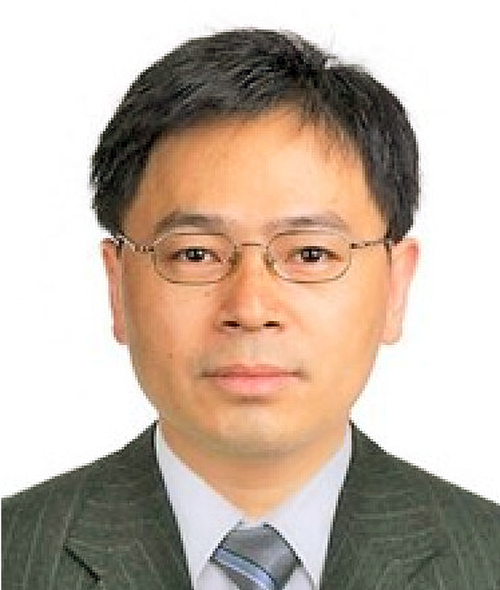
Geological, Environmental, Earth & Space Sciences
China
LI Fengting is a Professor of Tongji University and the Director for the Key Laboratory of Cities’ Mitigation and Adaptation to Climate Change in Shanghai, China Meteorological Administration (CMACC).
His research mainly focuses on climate change, water resources management, and carbon neutralization technology including , design and development of new functional nano materials, carbon utilization and low carbon water treatment , as well as mechanism of South-South and Triangular Cooperation. He has published over 400 papers on peer-review journals and he was granted with more than 90 patents from China and globally. He has designed numerous water treatment products which are widely used in the treatment of drinking water, domestic wastewater and industrial wastewater in China as well as countries in Asia-Pacific and Africa.
Li was the lead expert of the UNEP-China-Africa Cooperation Programme from 2008-2015, a flagship South-South Partnership coordinated by UNEP and funded by the Ministry of Science and Technology of China, while his research team focused on water resources management and water treatment in Africa with specific projects on: 1) wastewater treatment of communities in Africa; and 2) the development, application and demonstration of water resources utilization technology.
Li obtained his bachelor’s degree from Beijing Institute of Technology, and master’s degree from Shandong University. In 1997, Li obtained his Ph.D from Nanjing University, China. He was conferred the Special Contribution Award for South-South Cooperation by the United Nations in 2013.
Pagination

Elected: